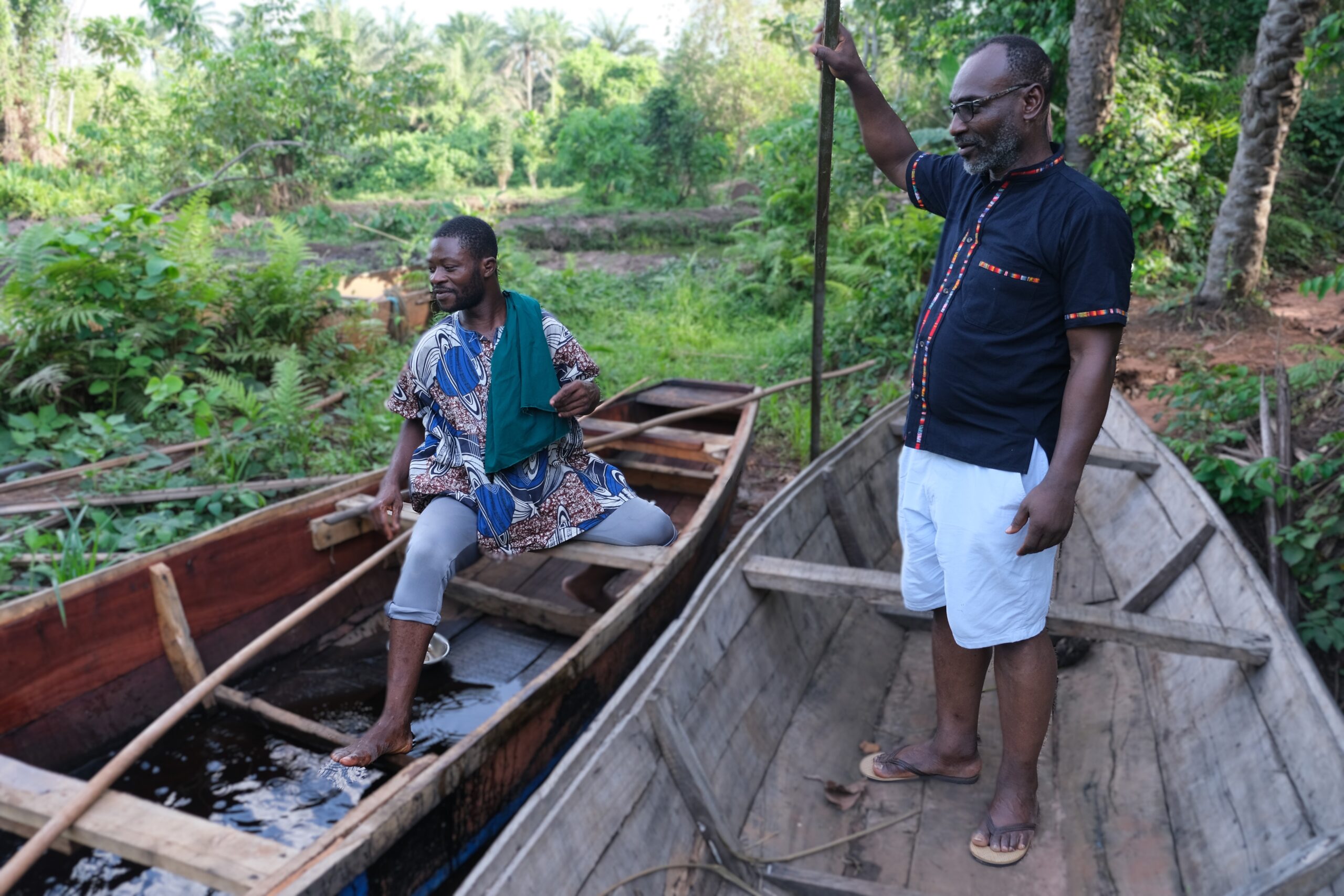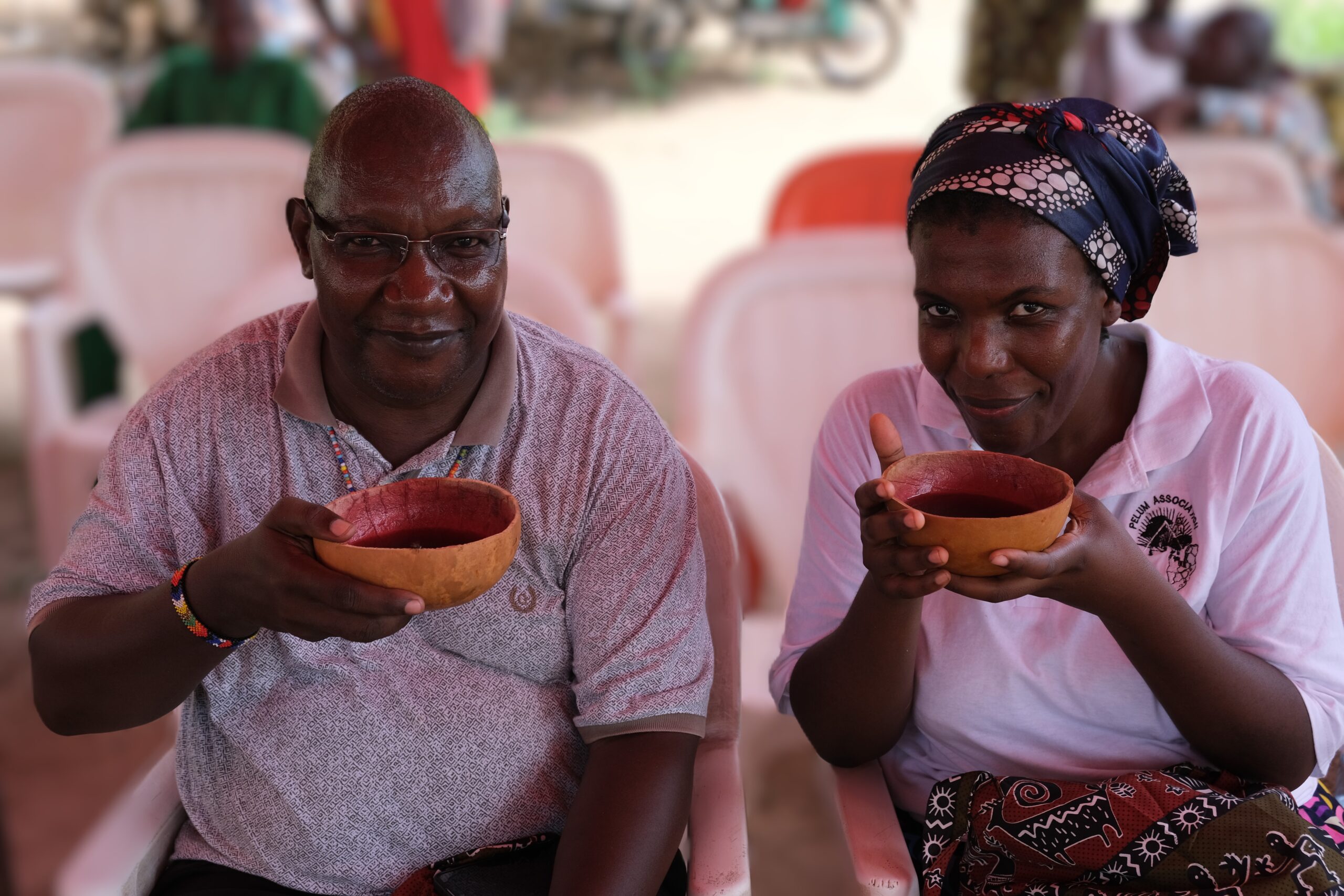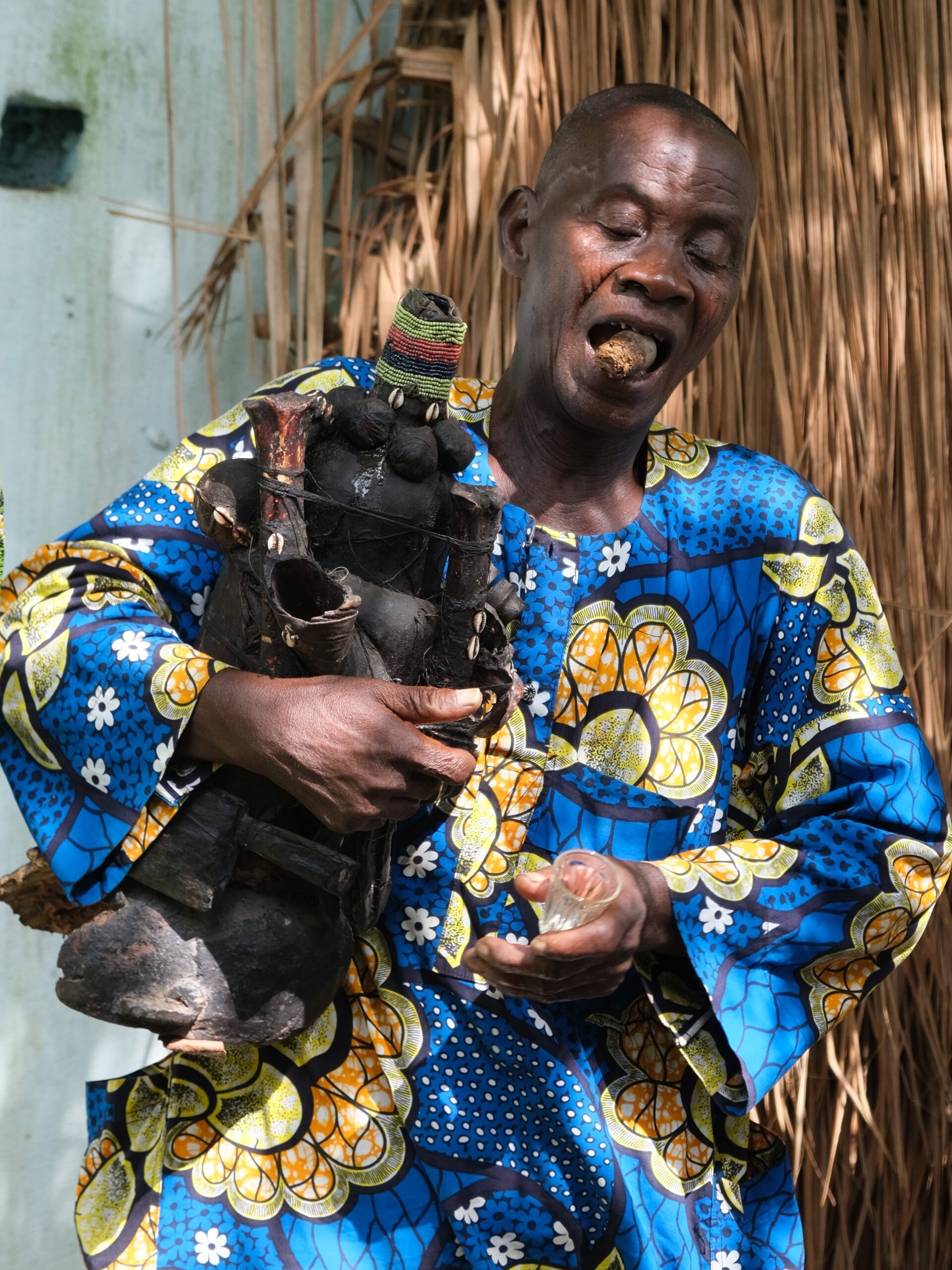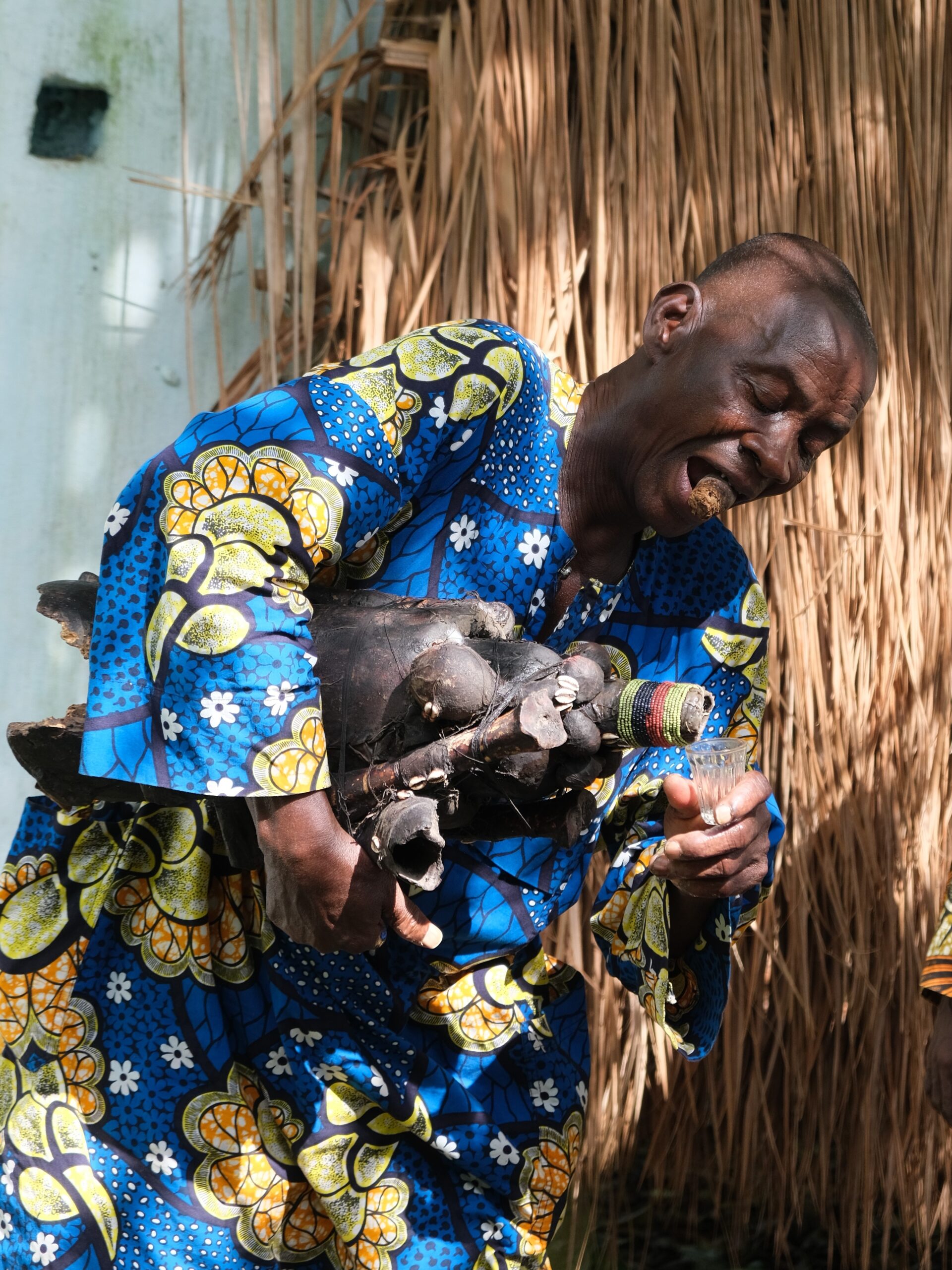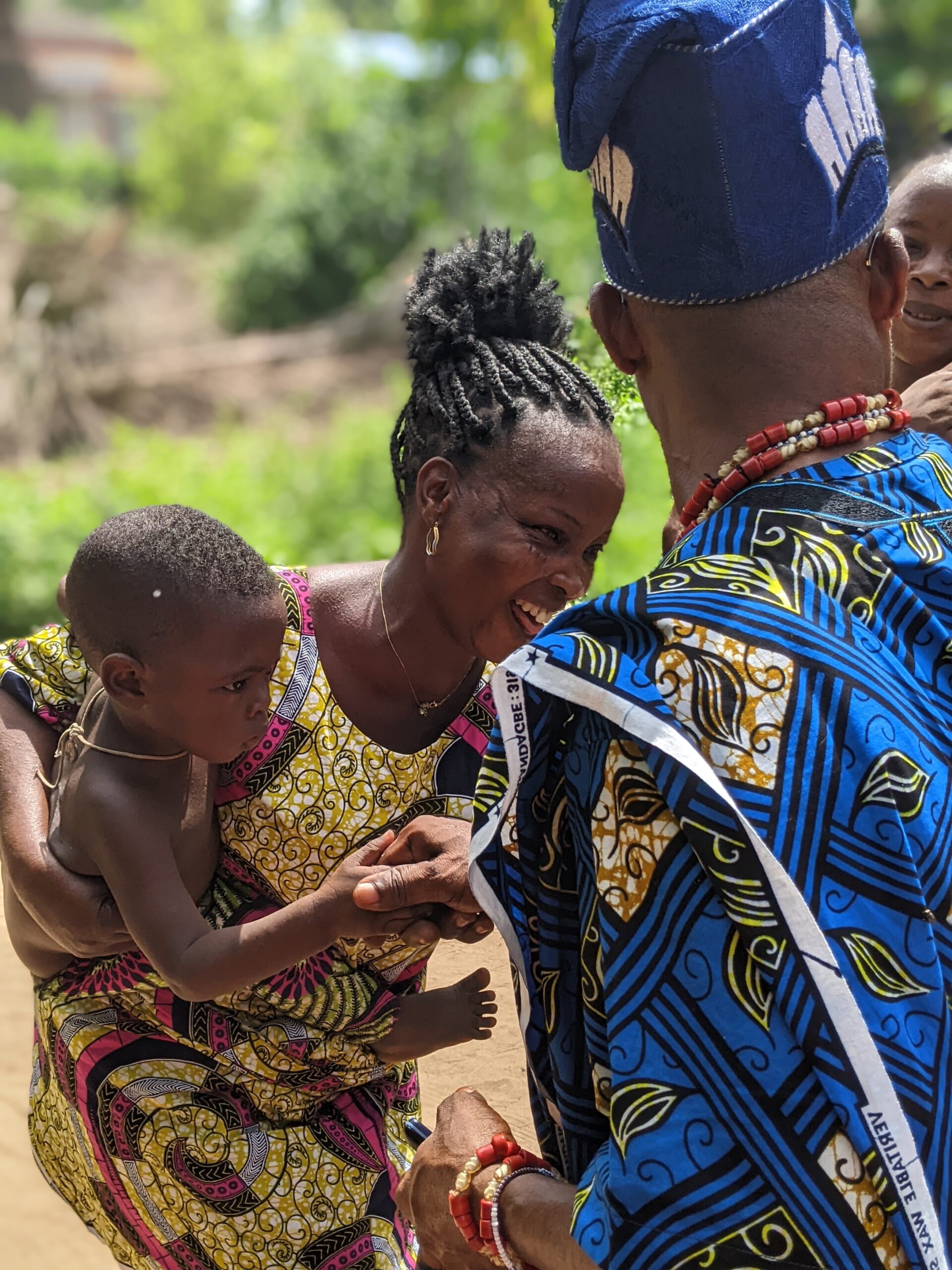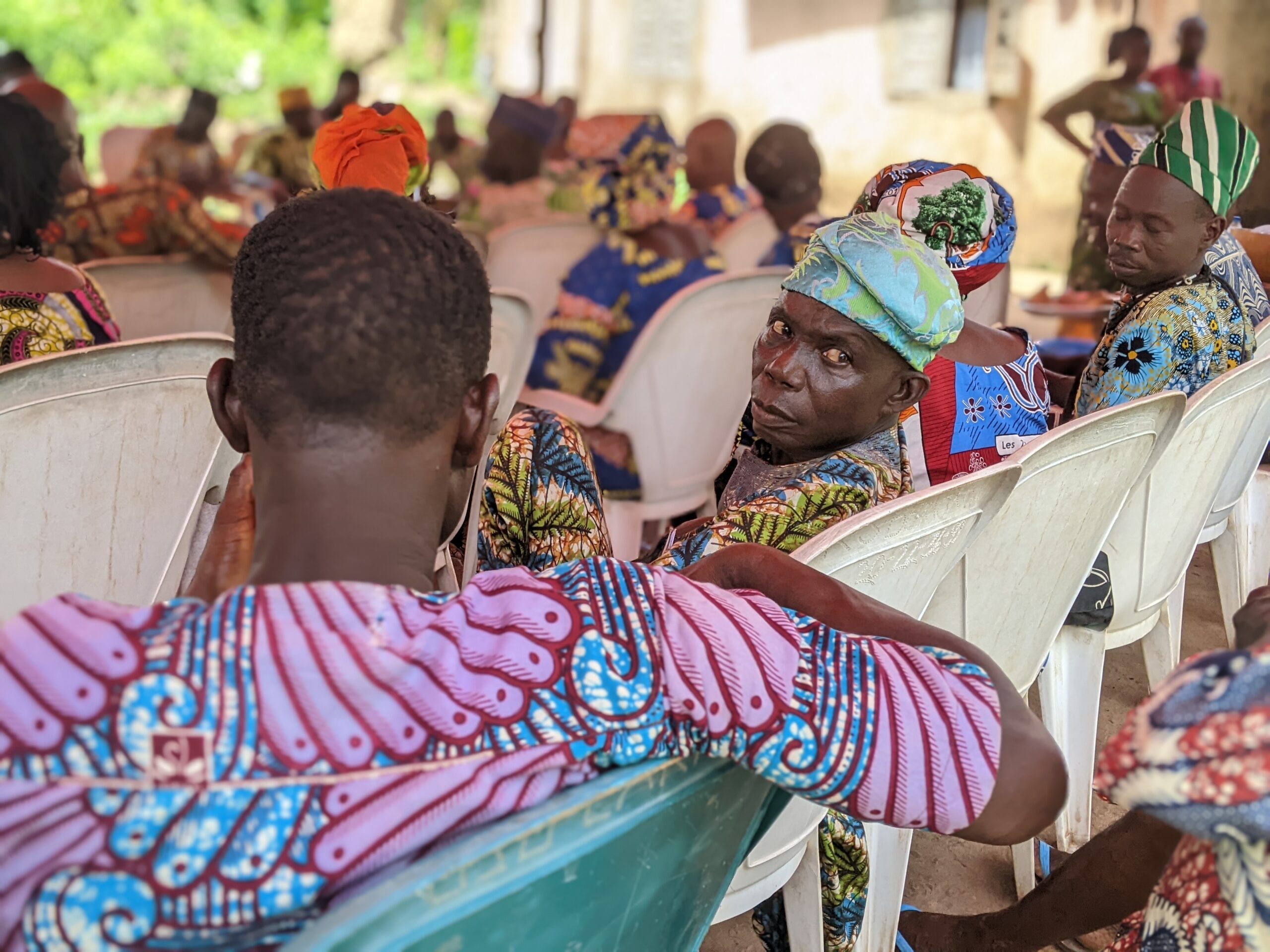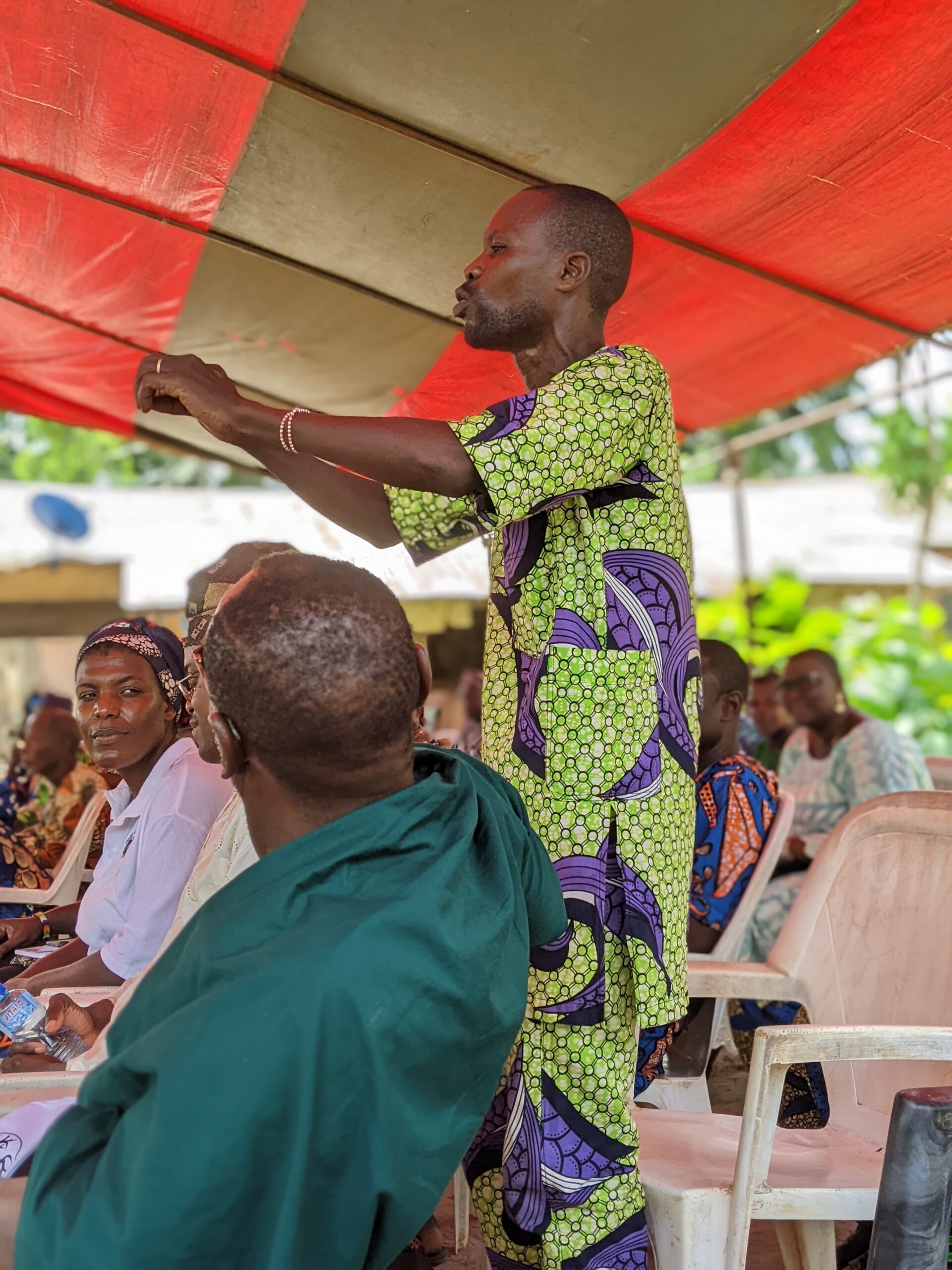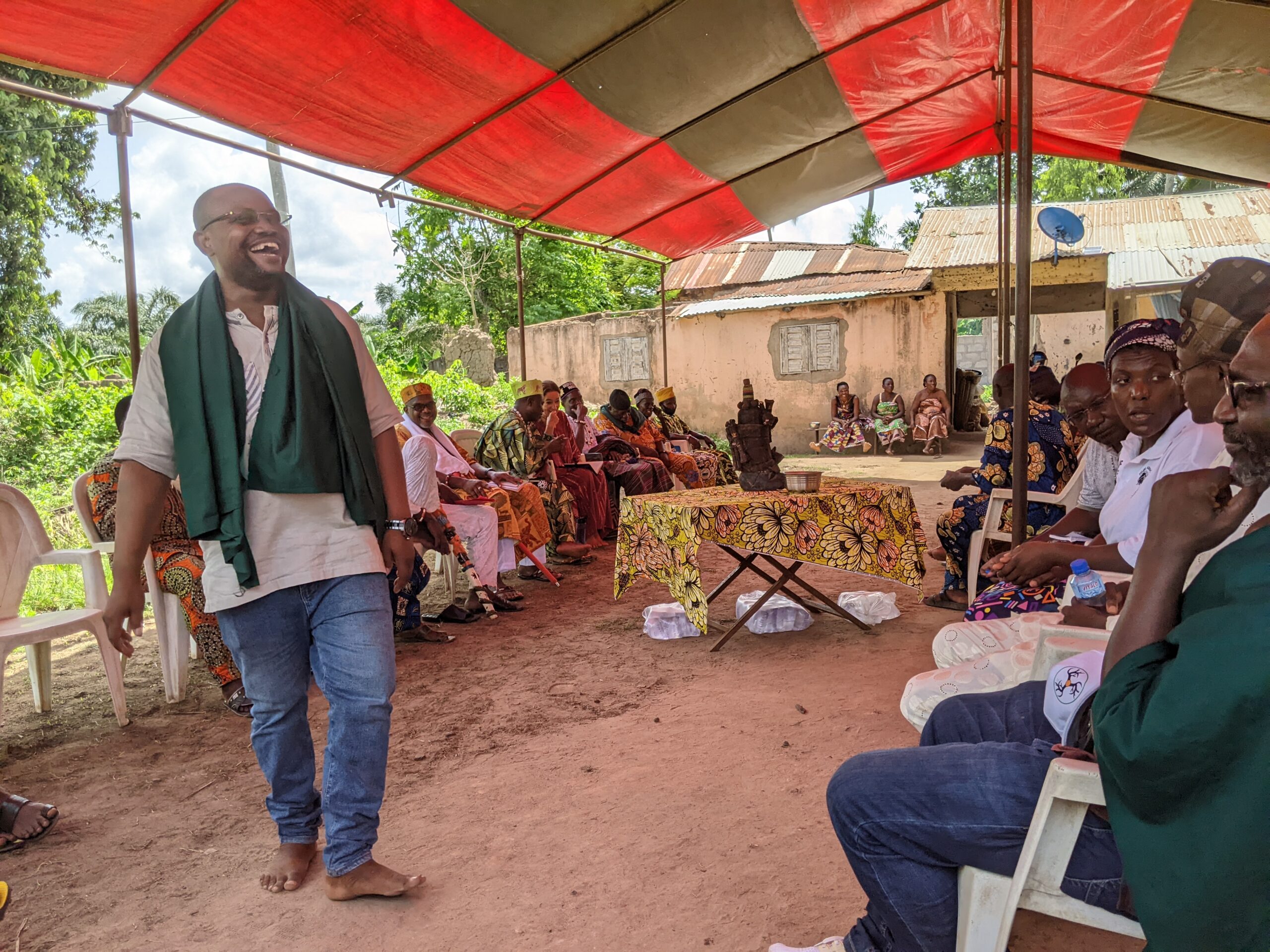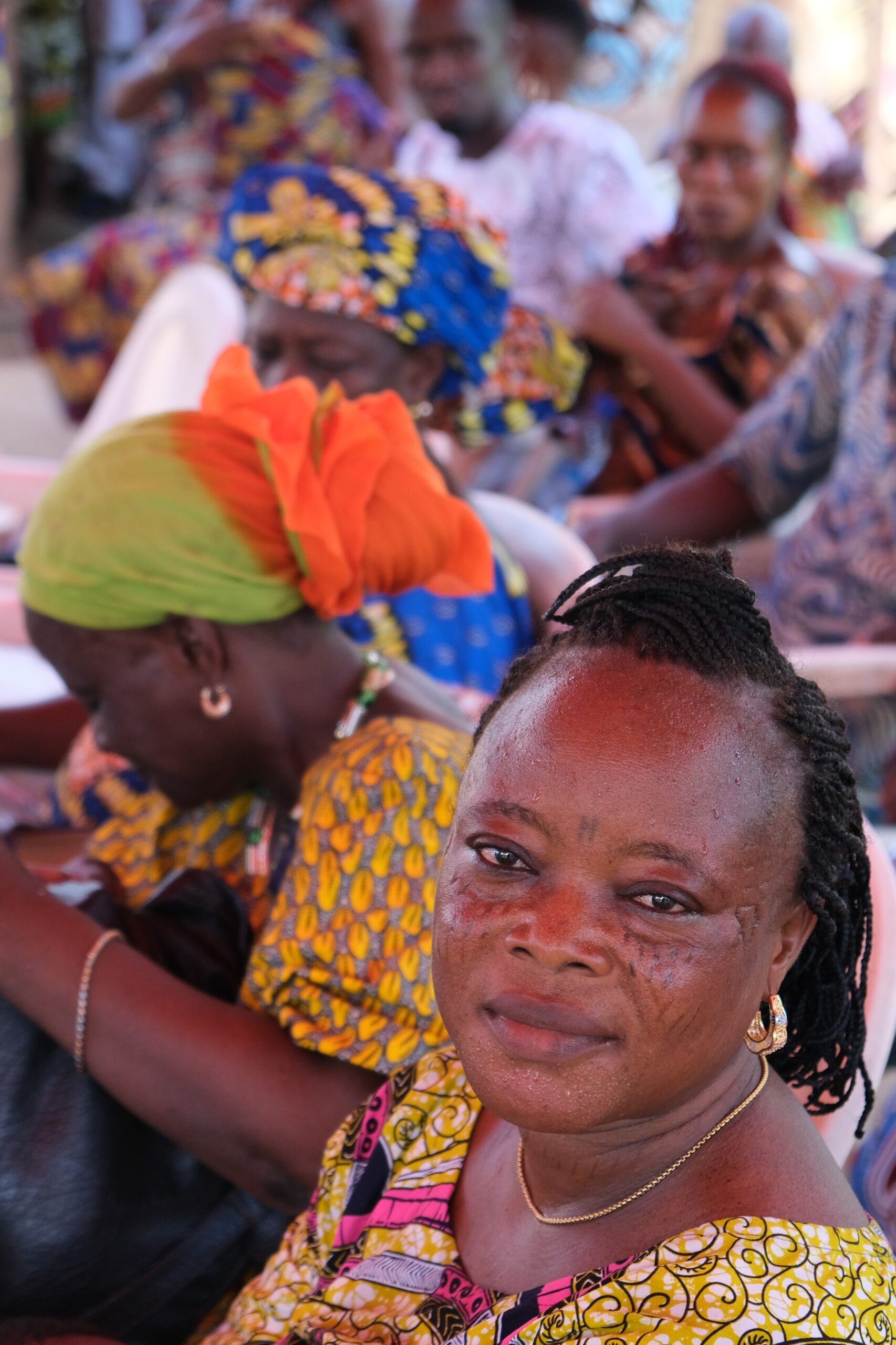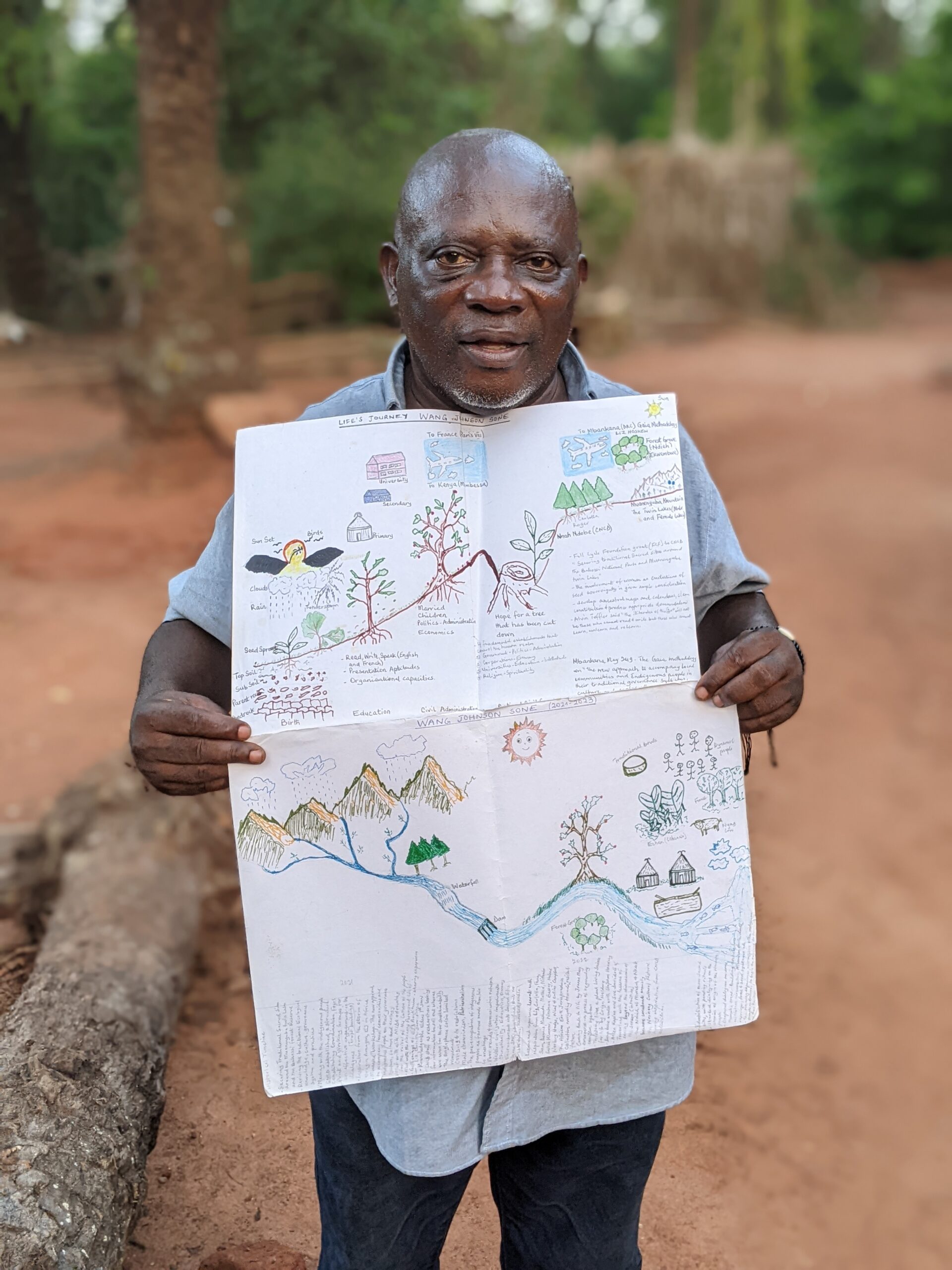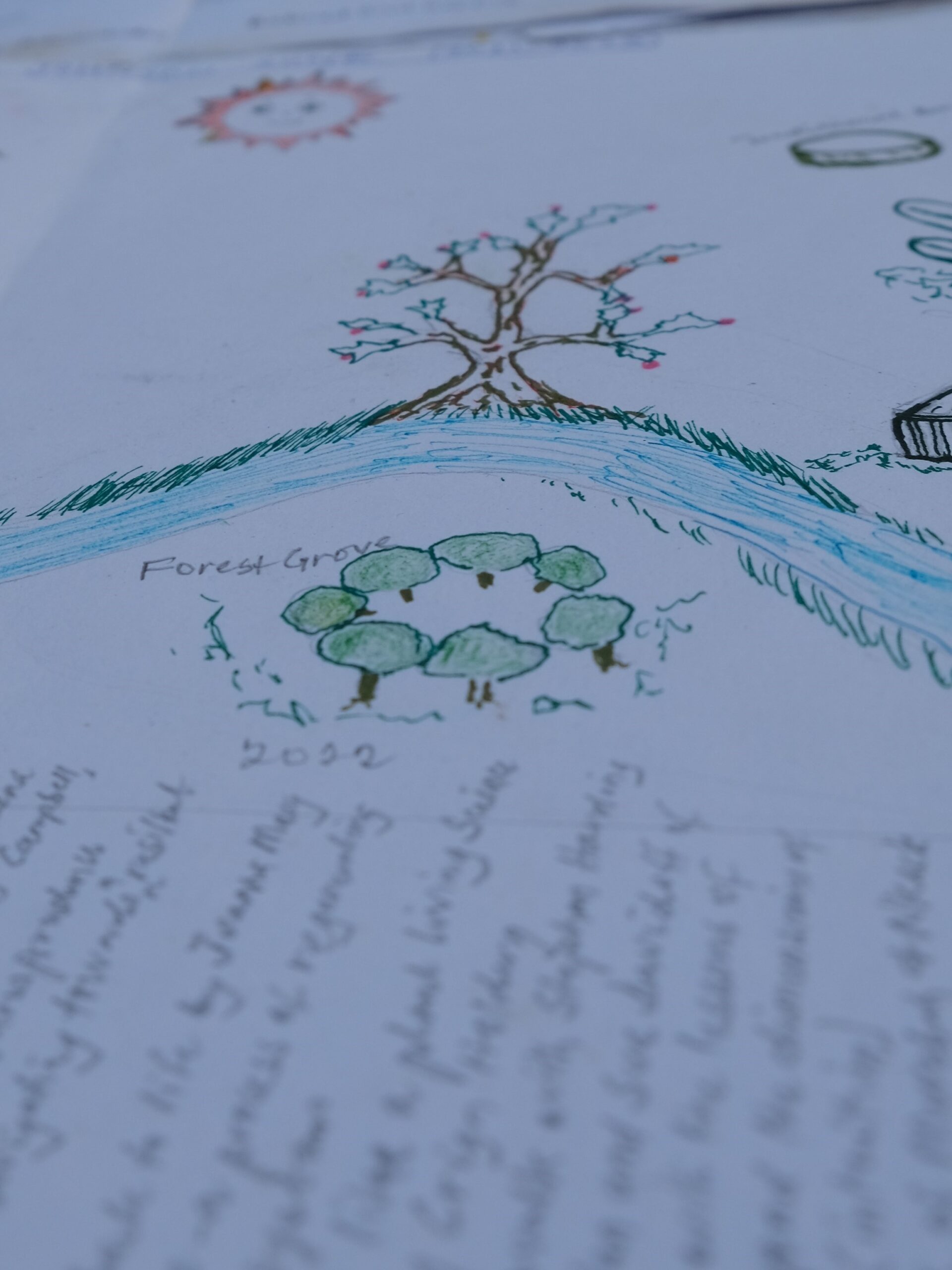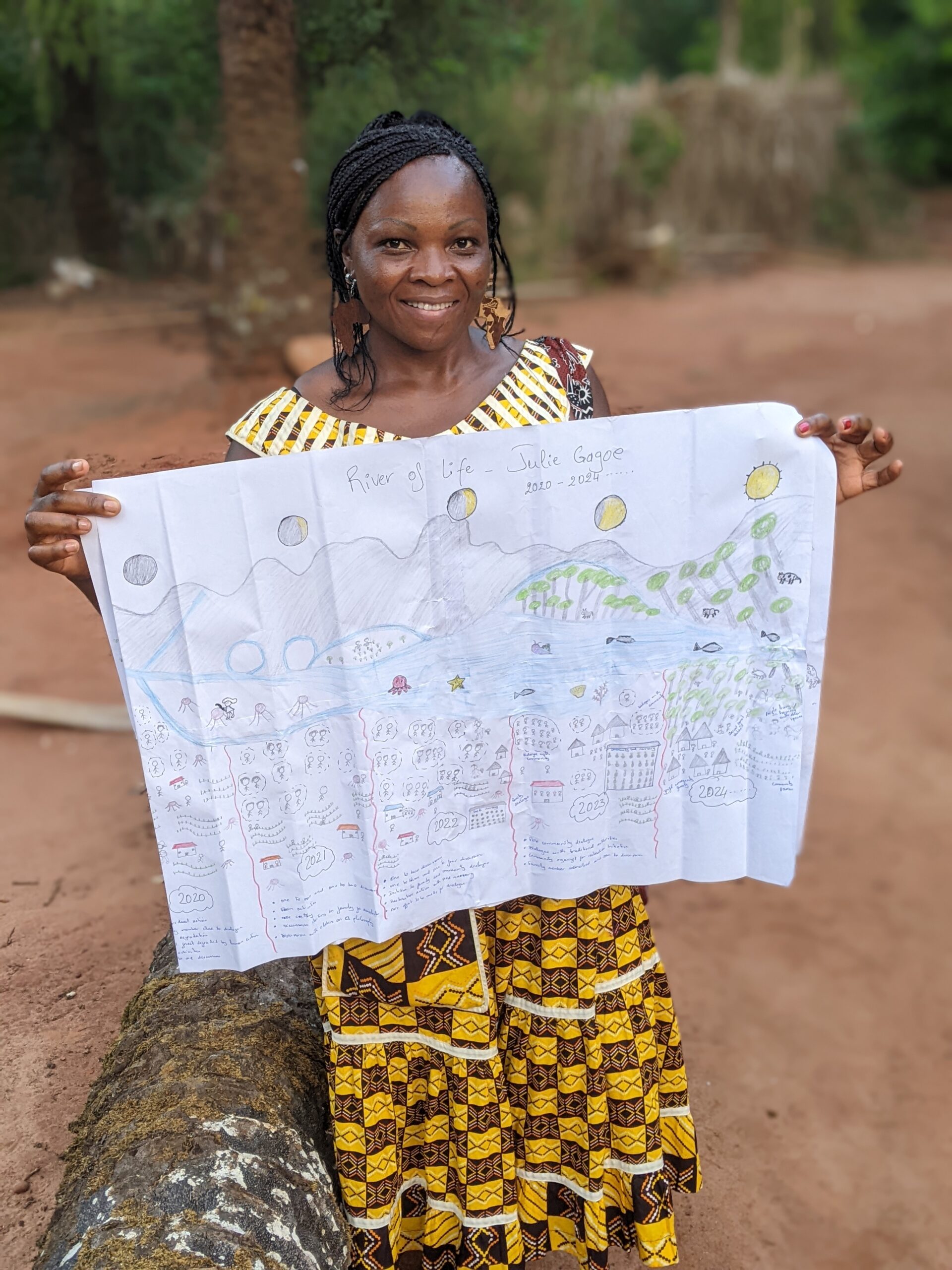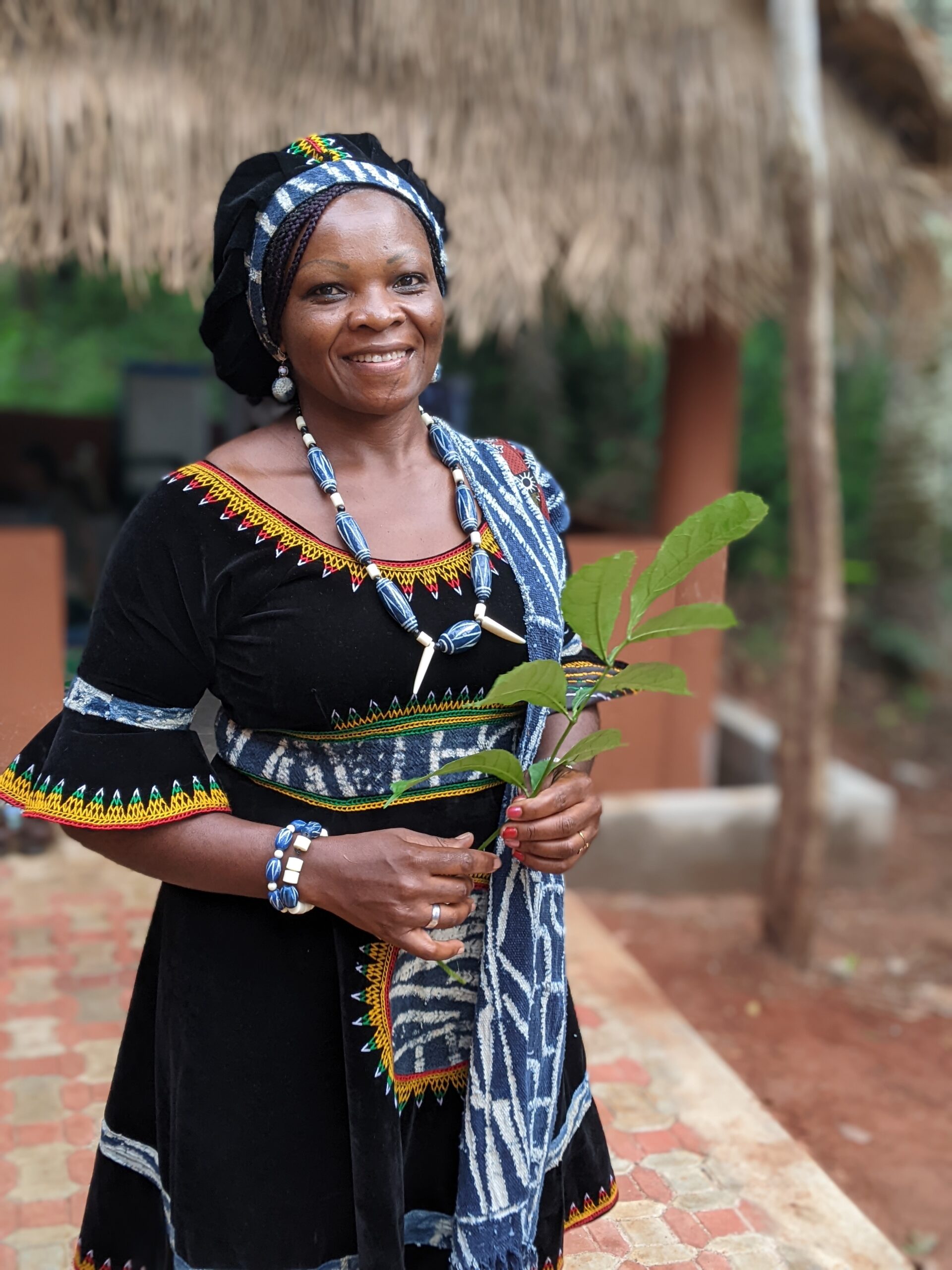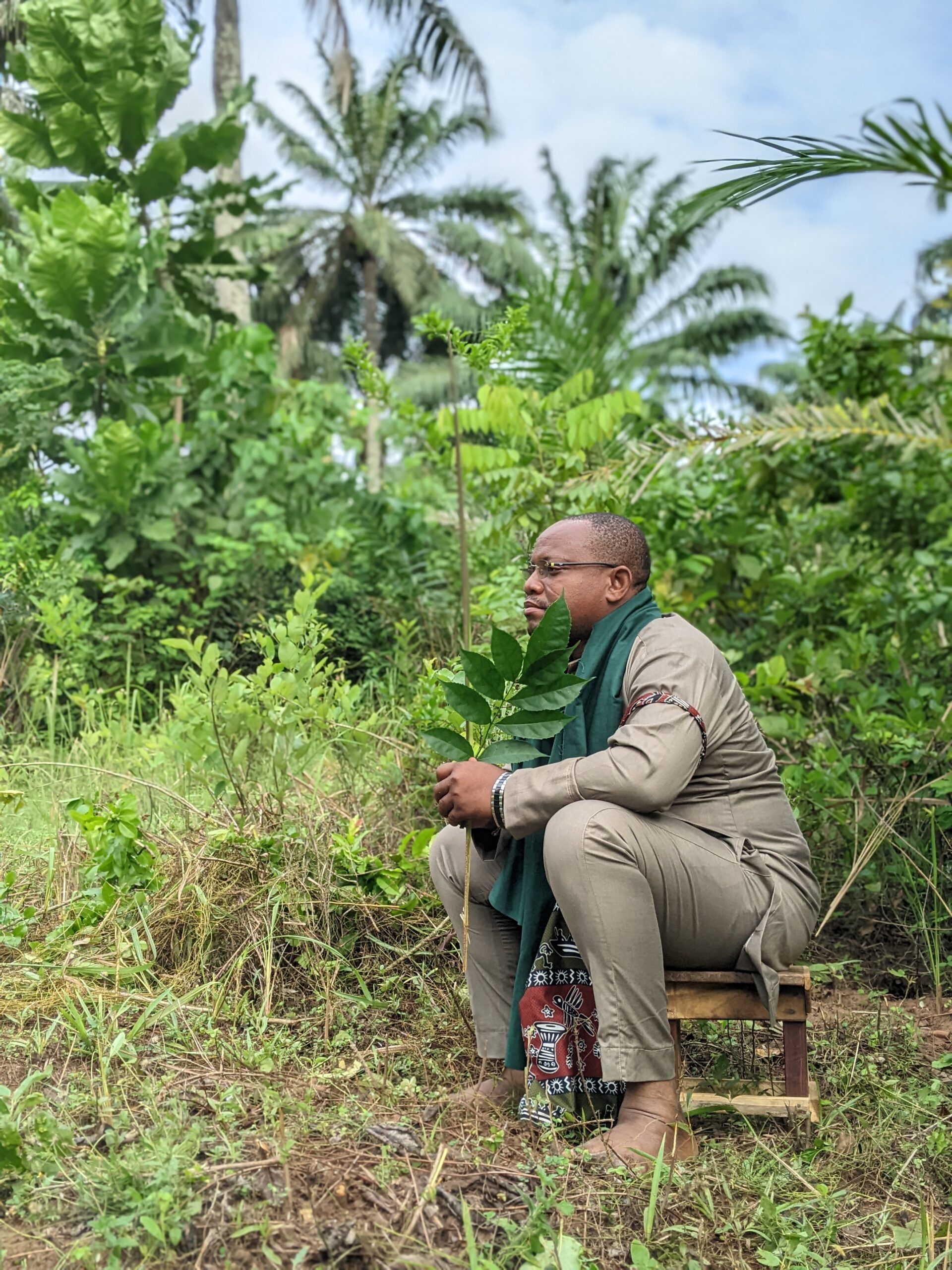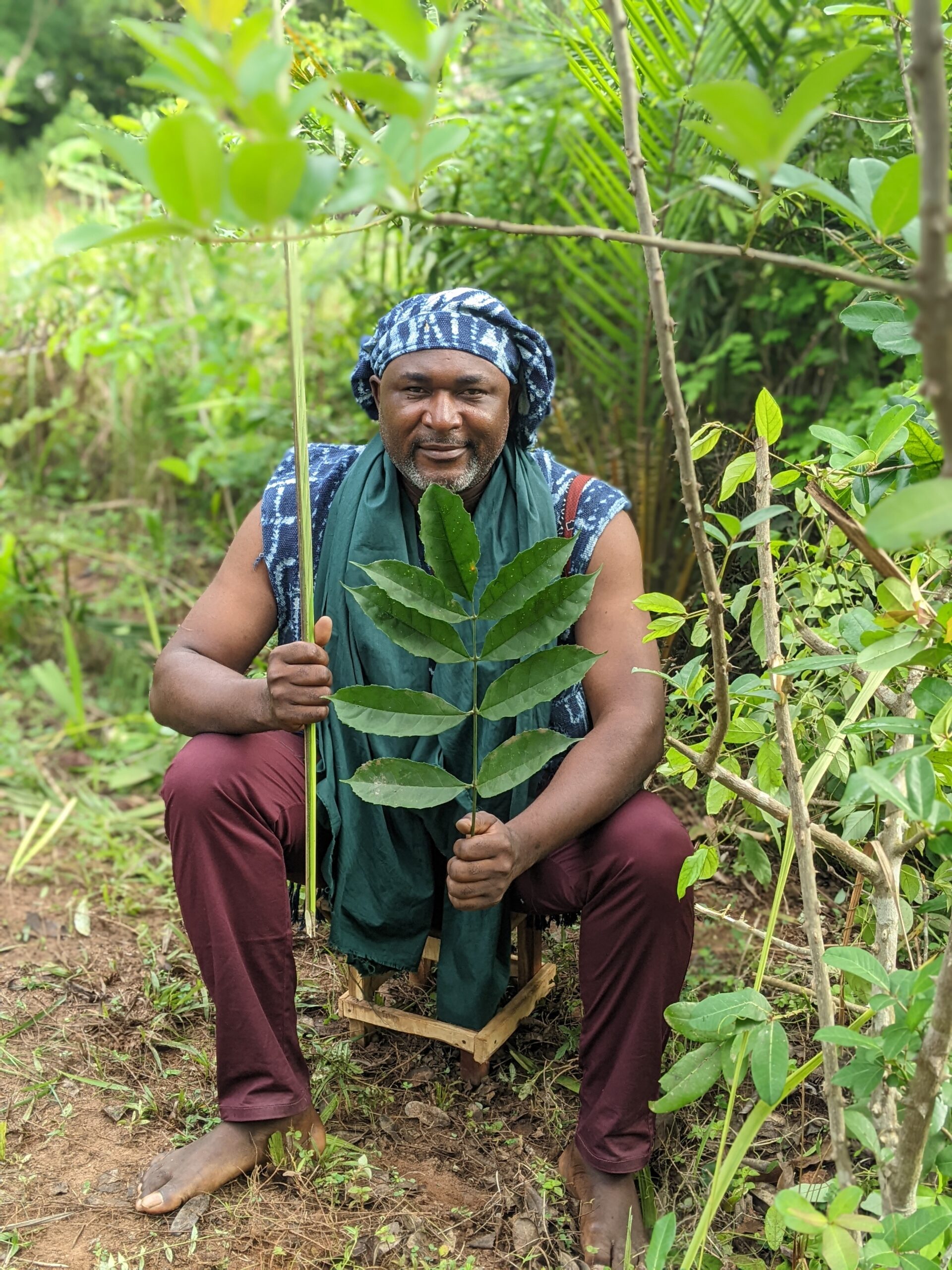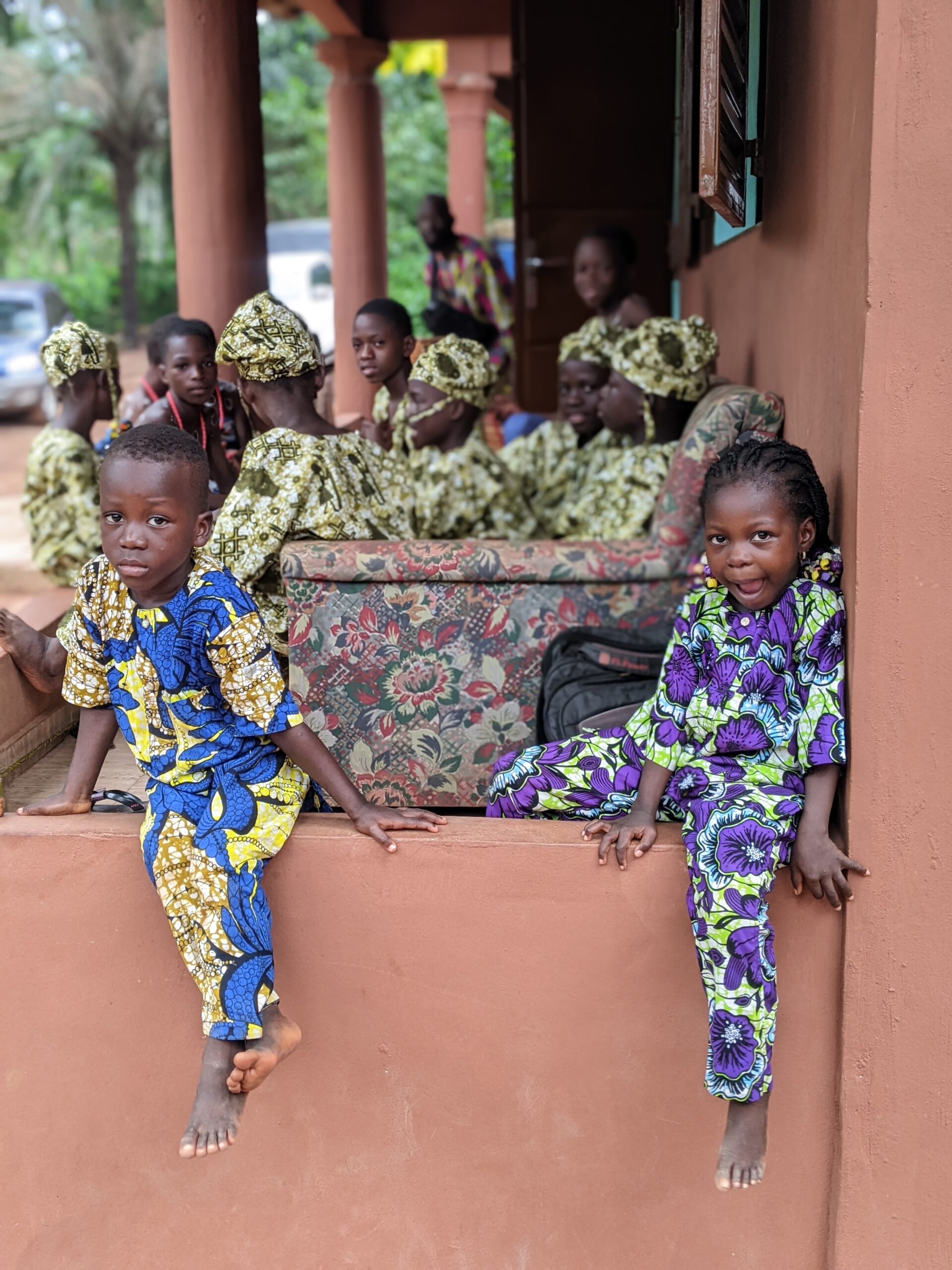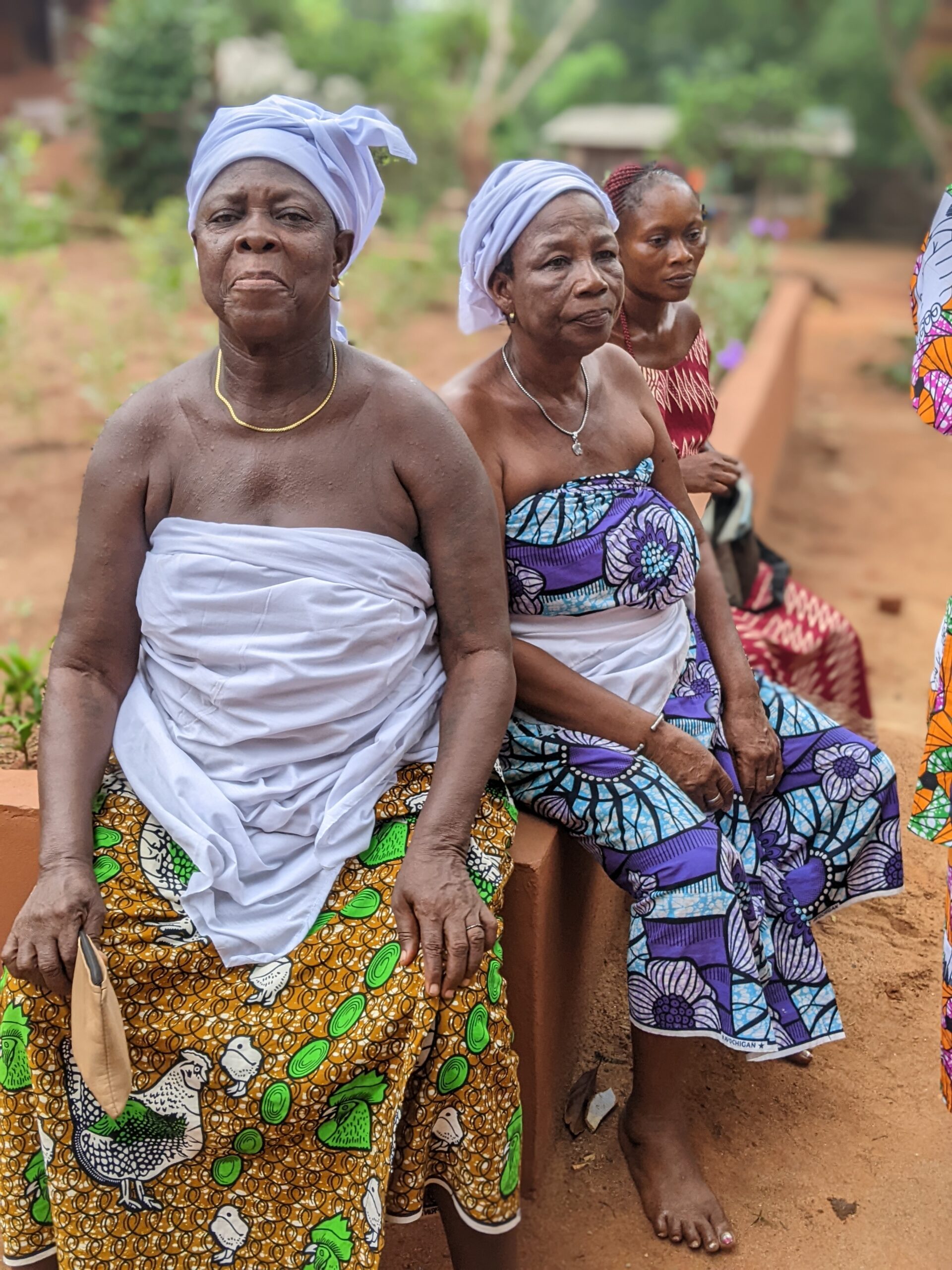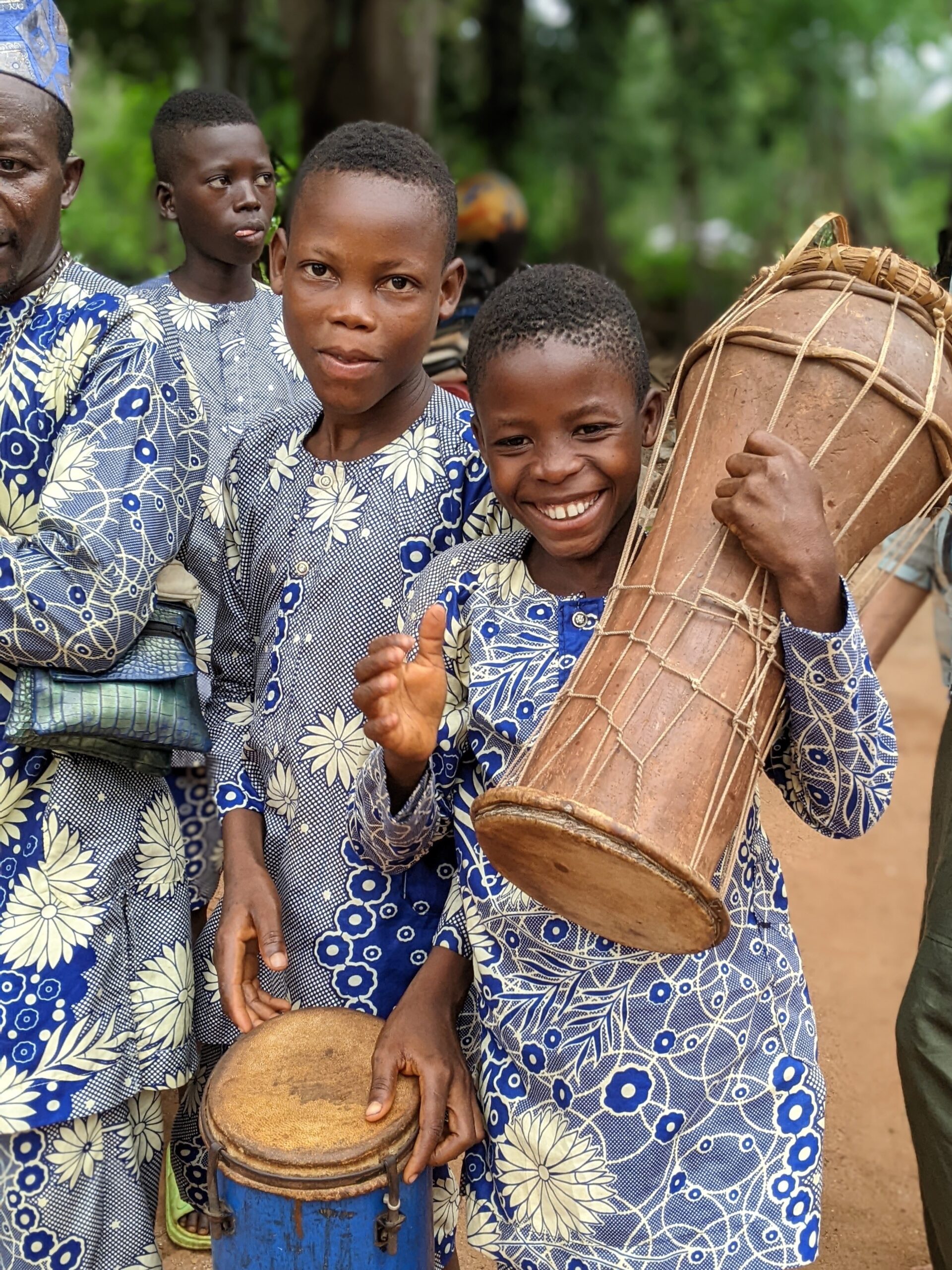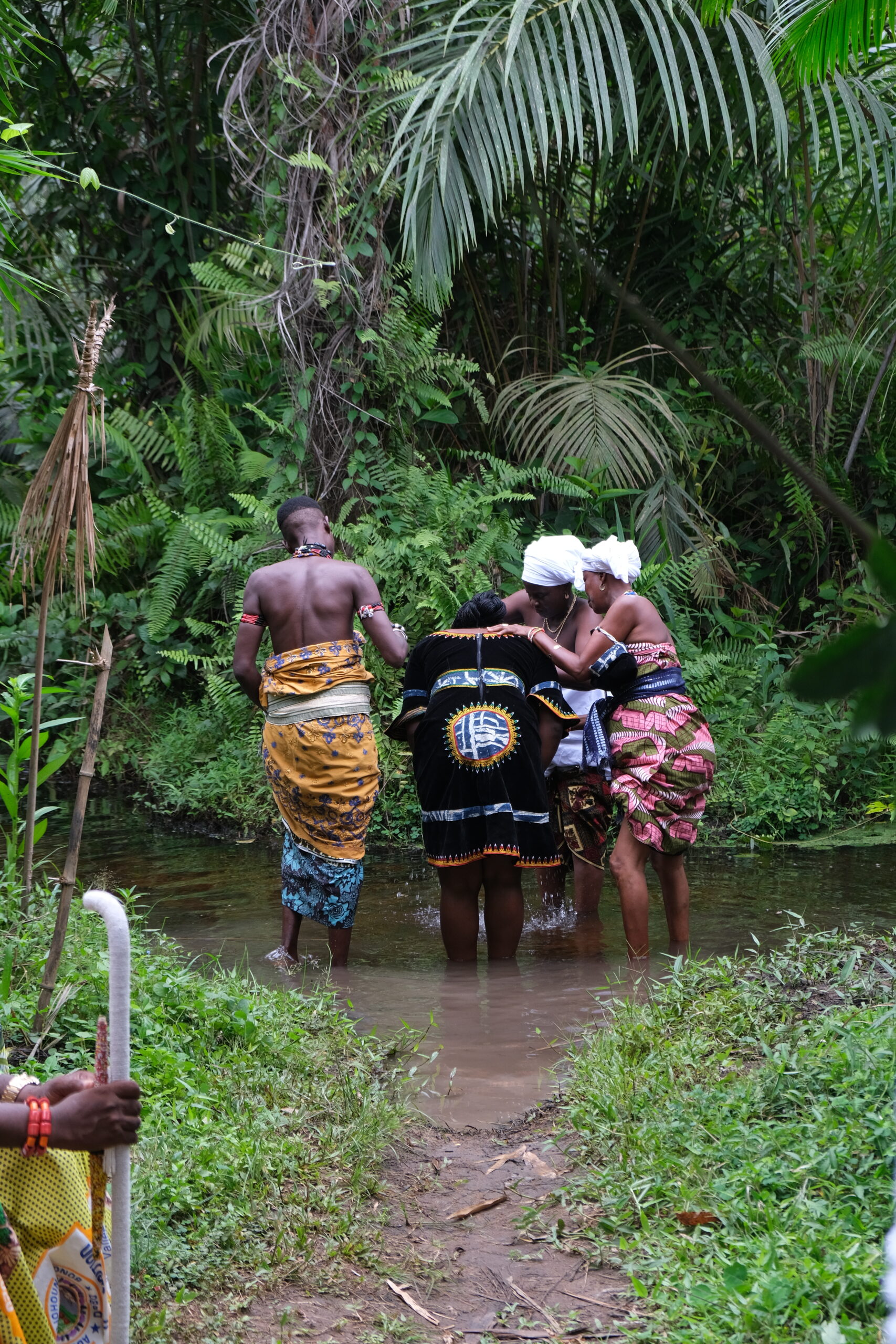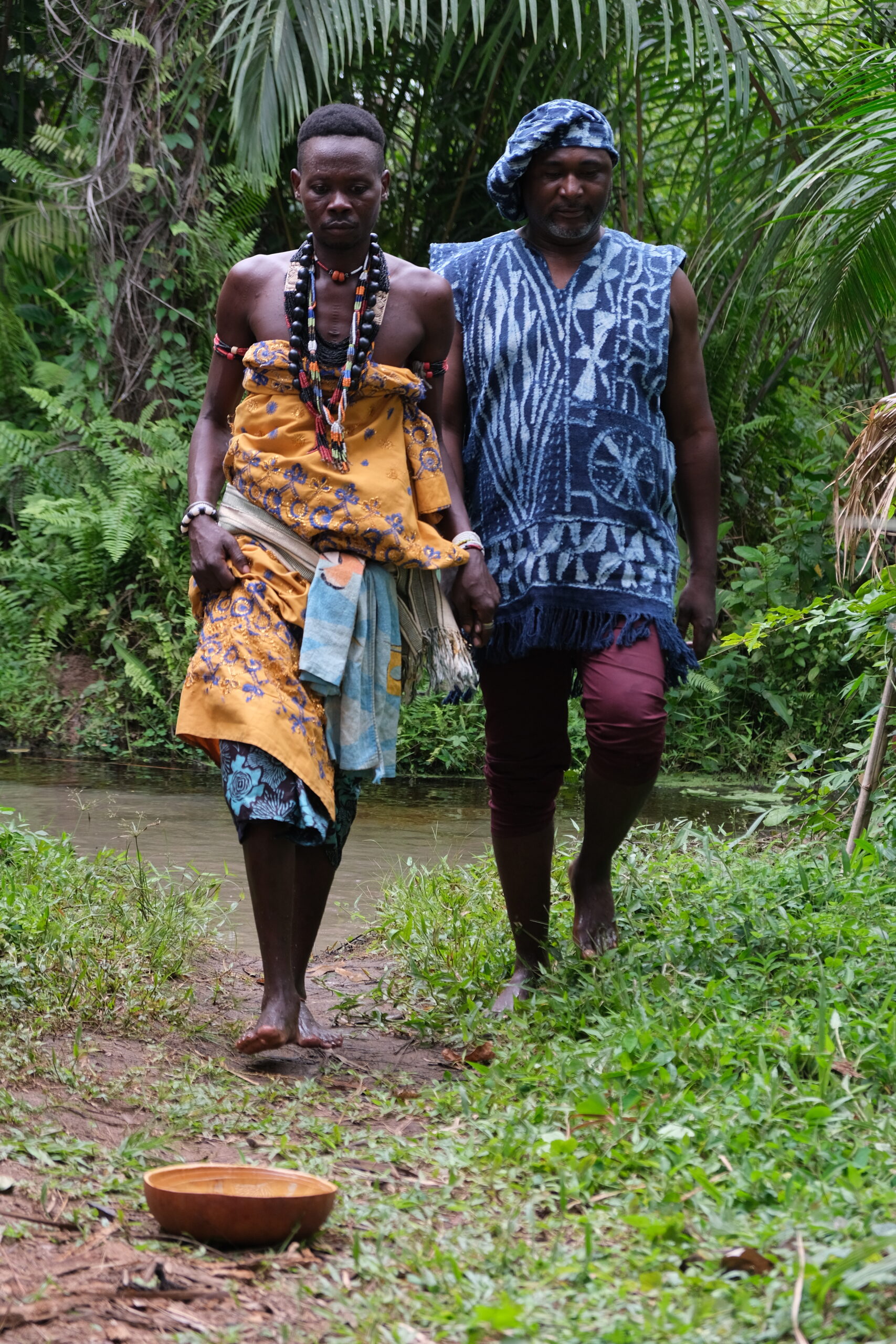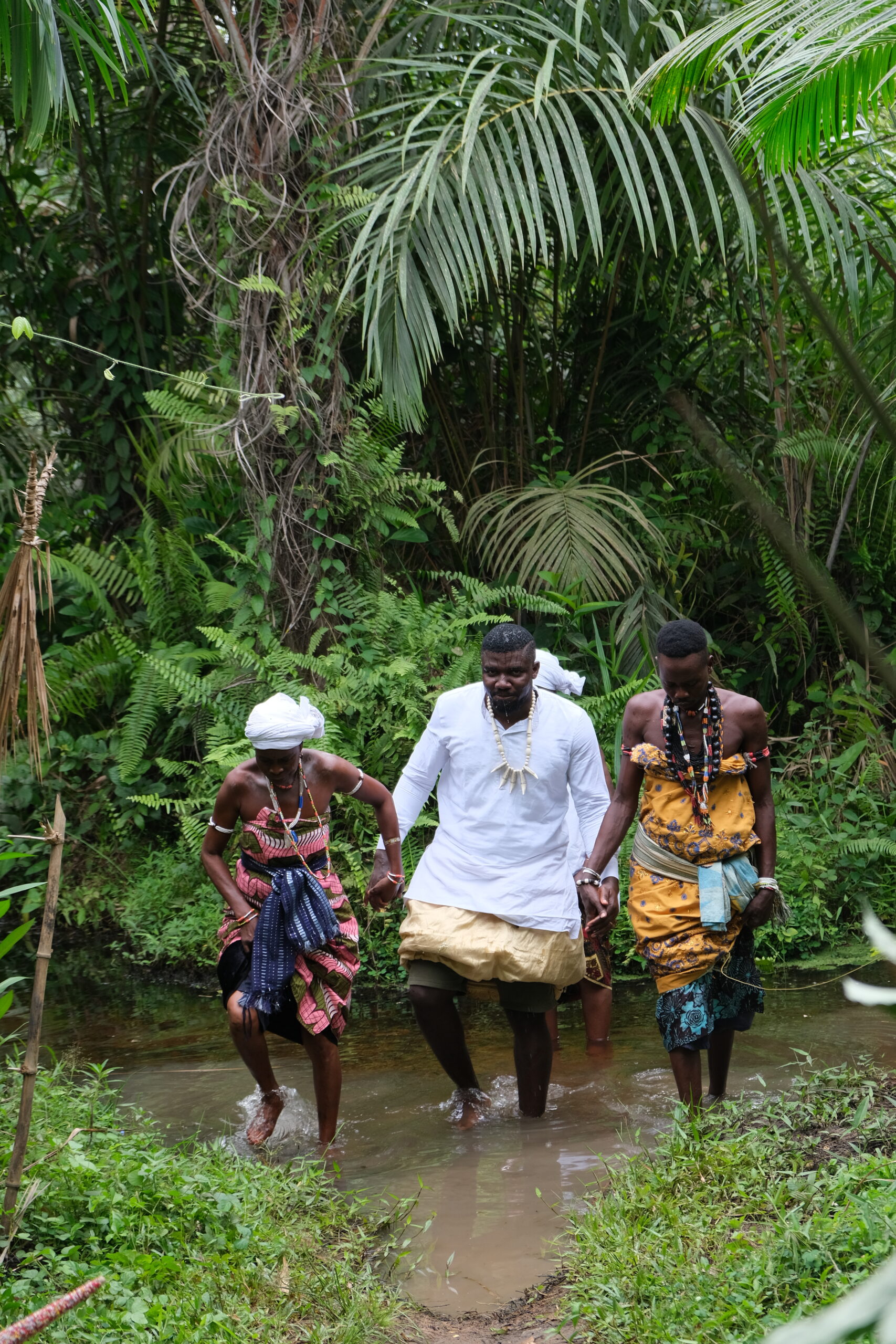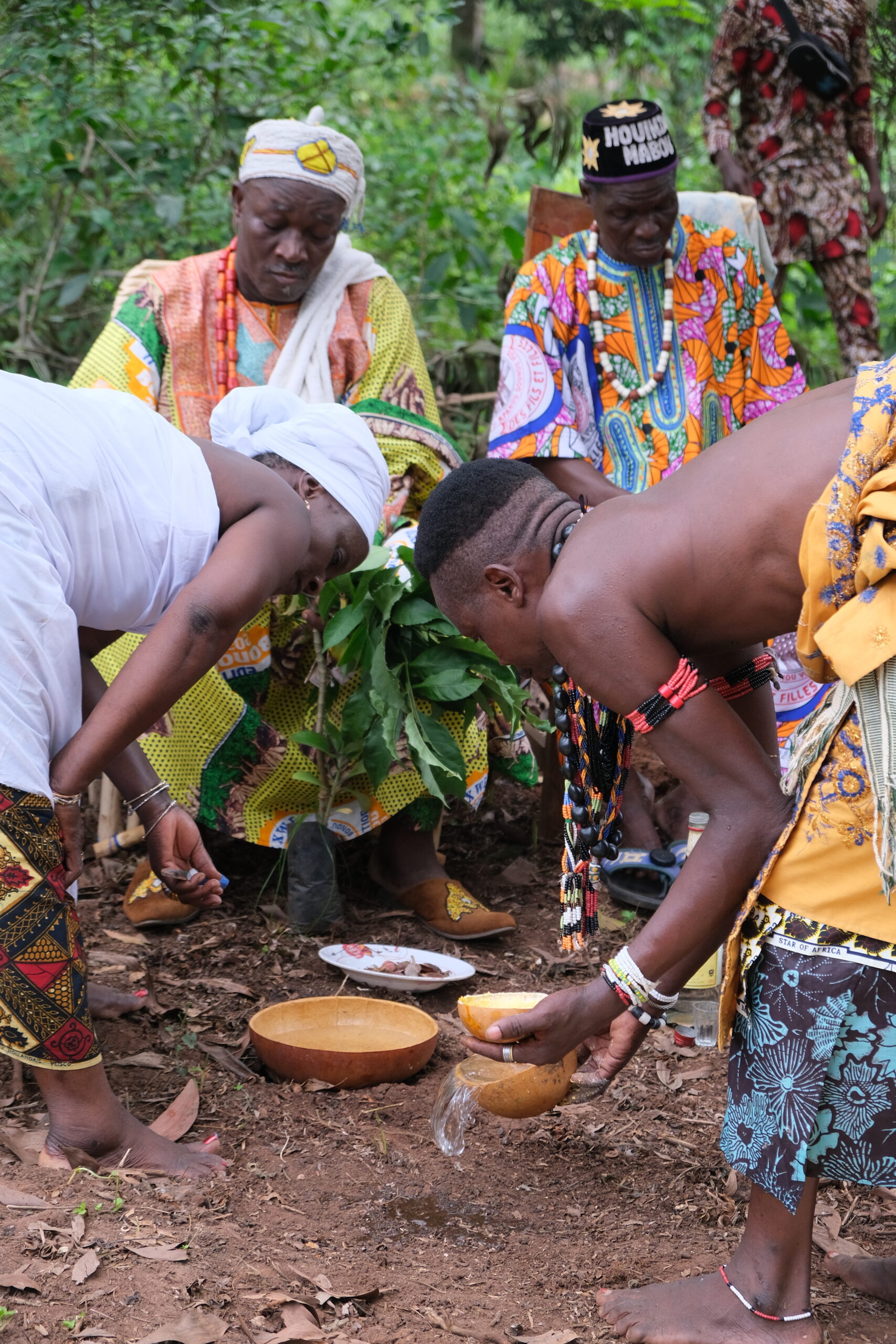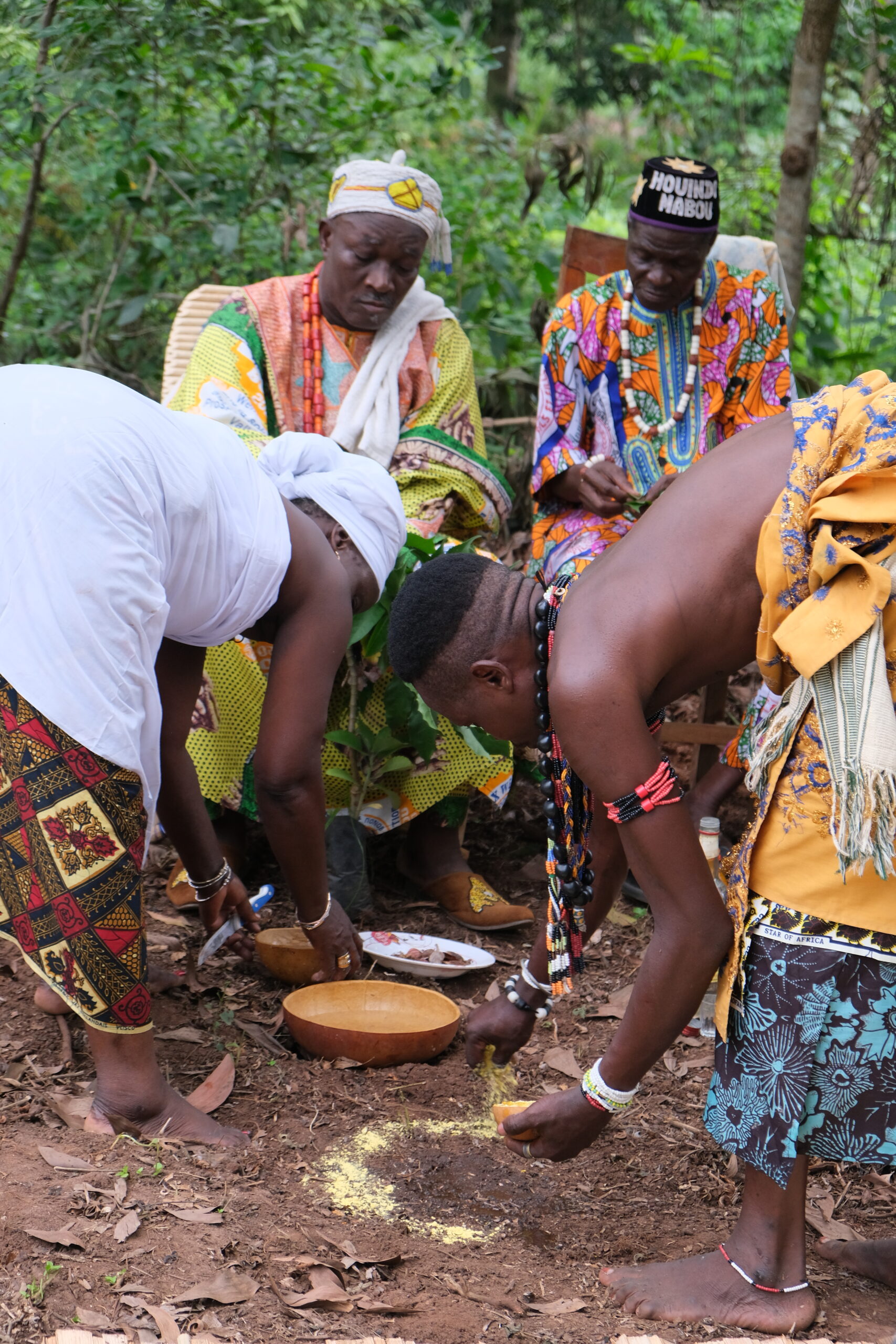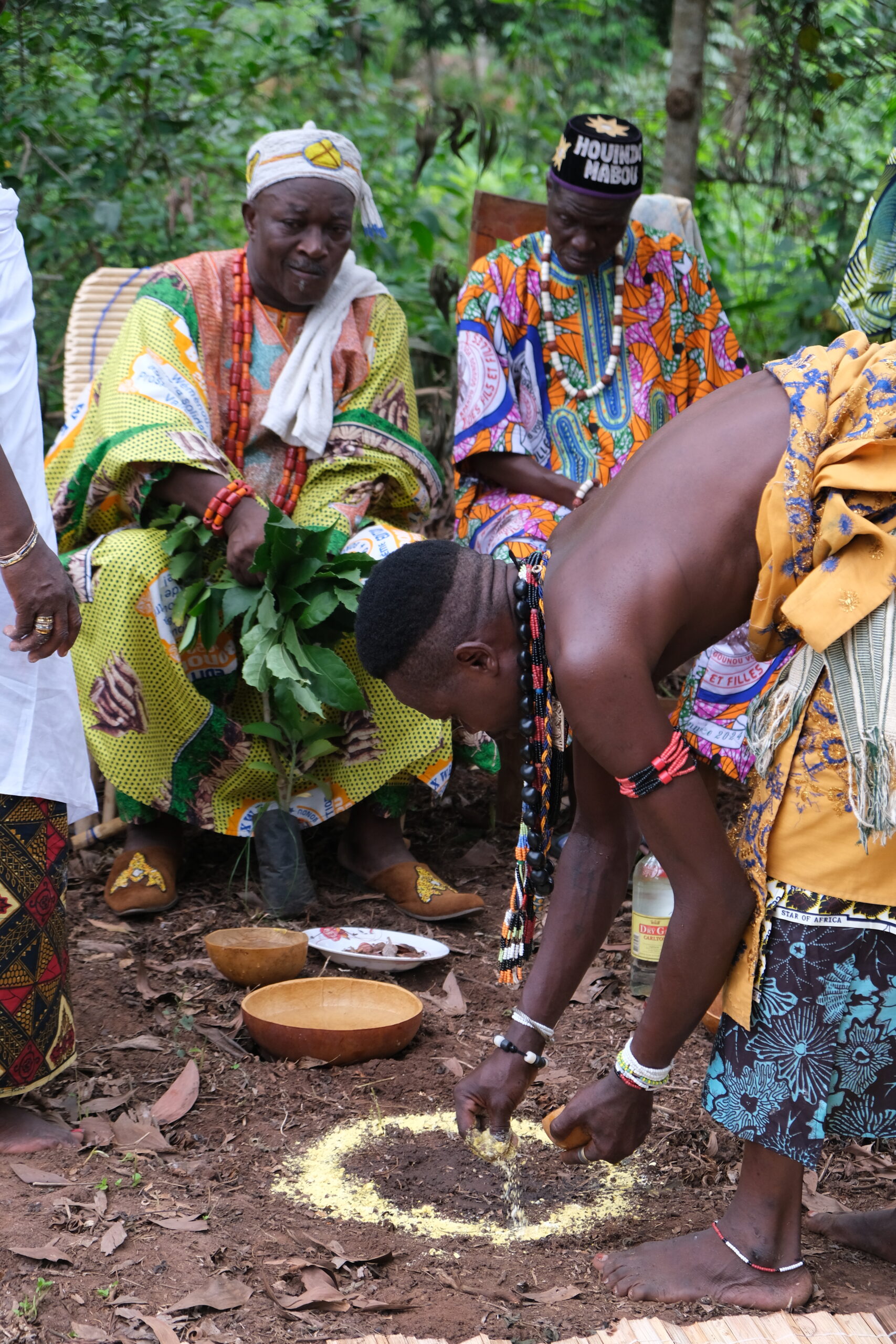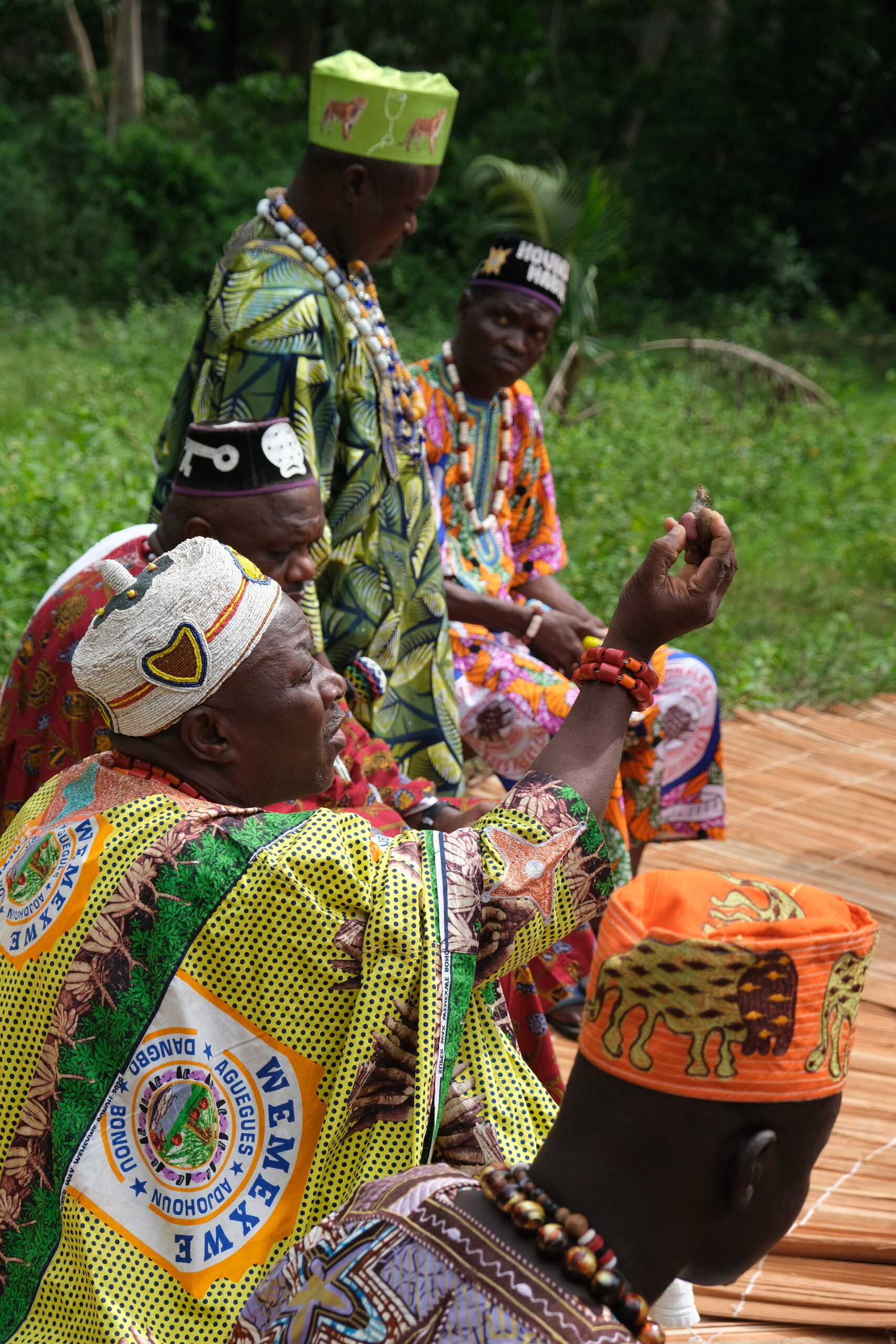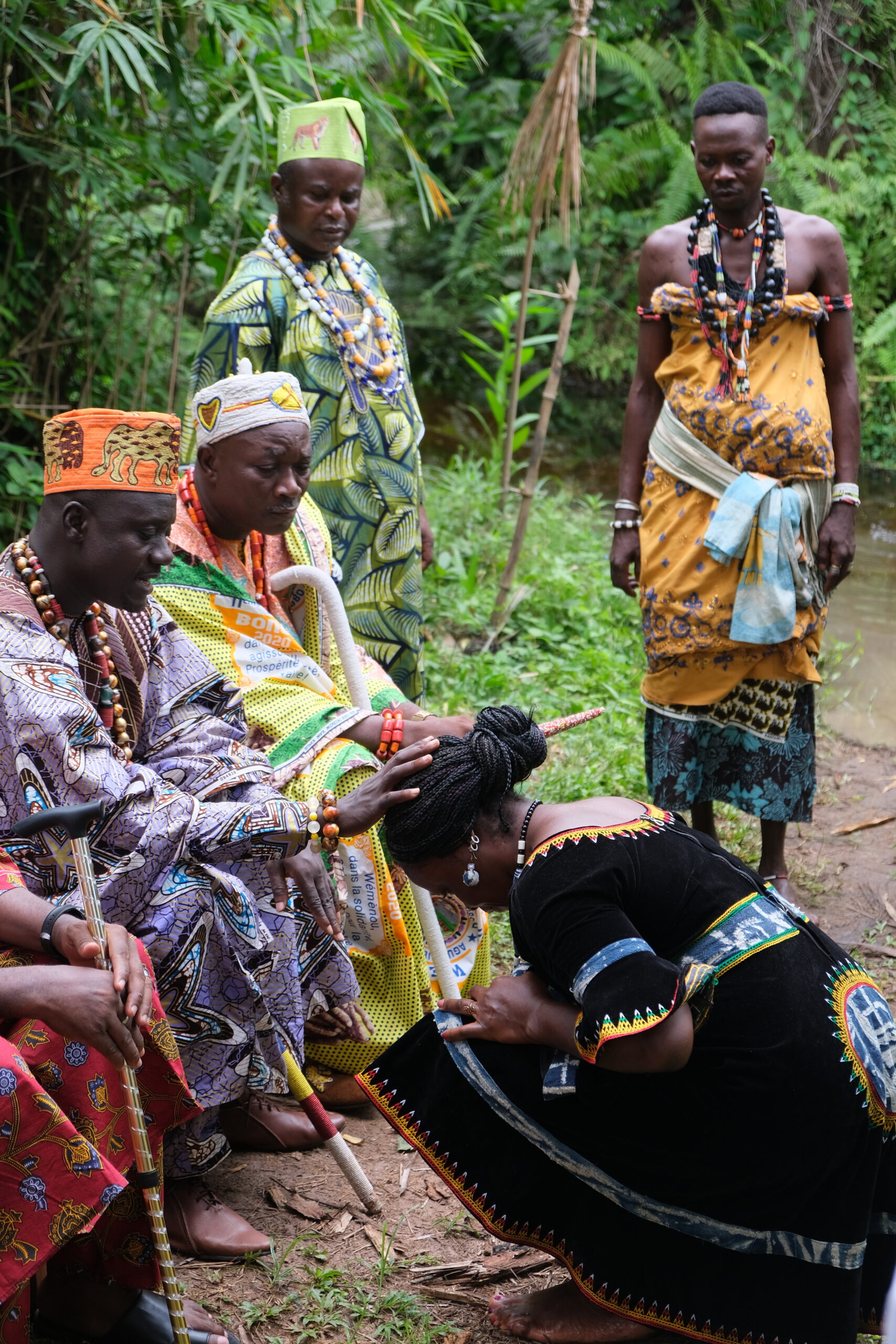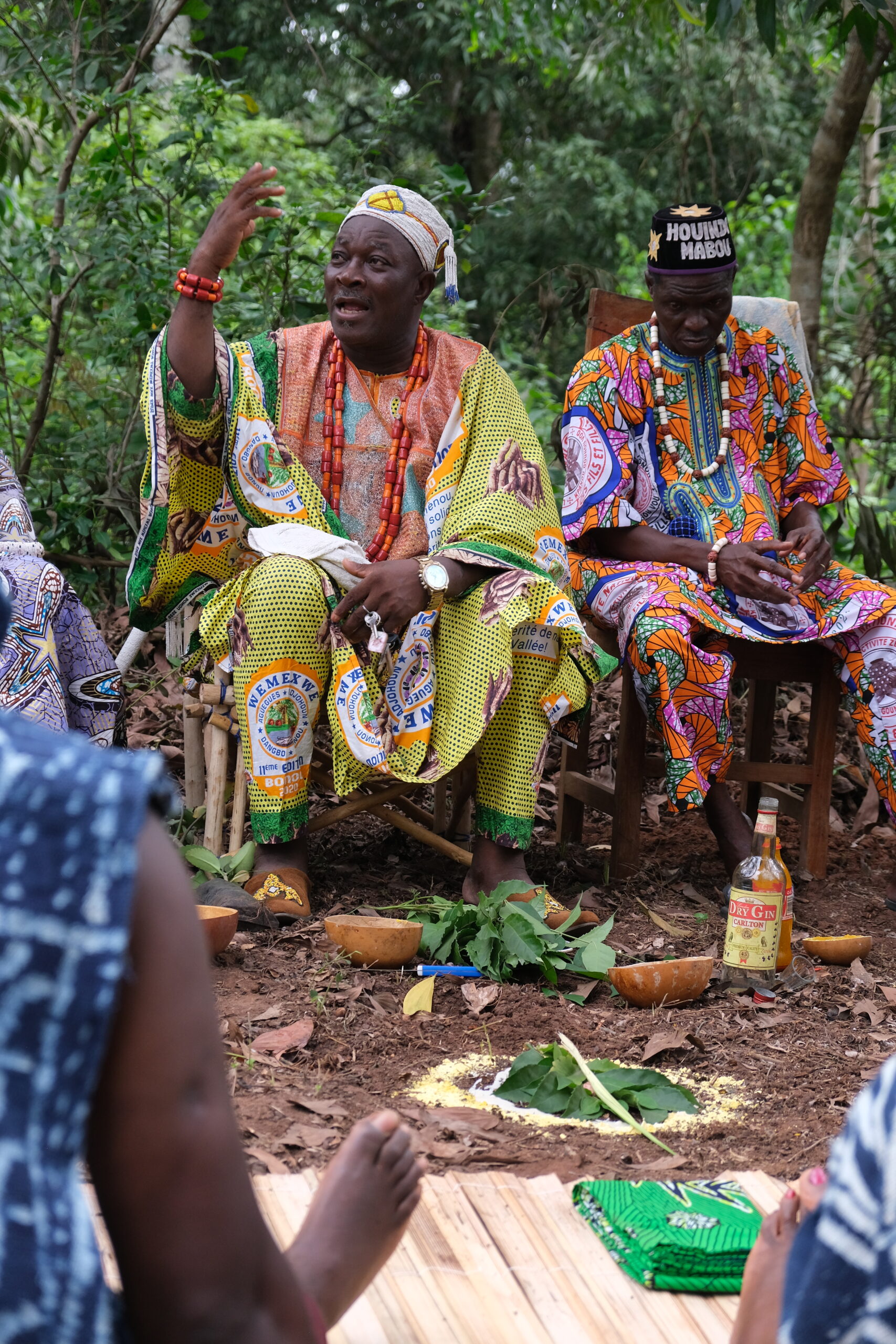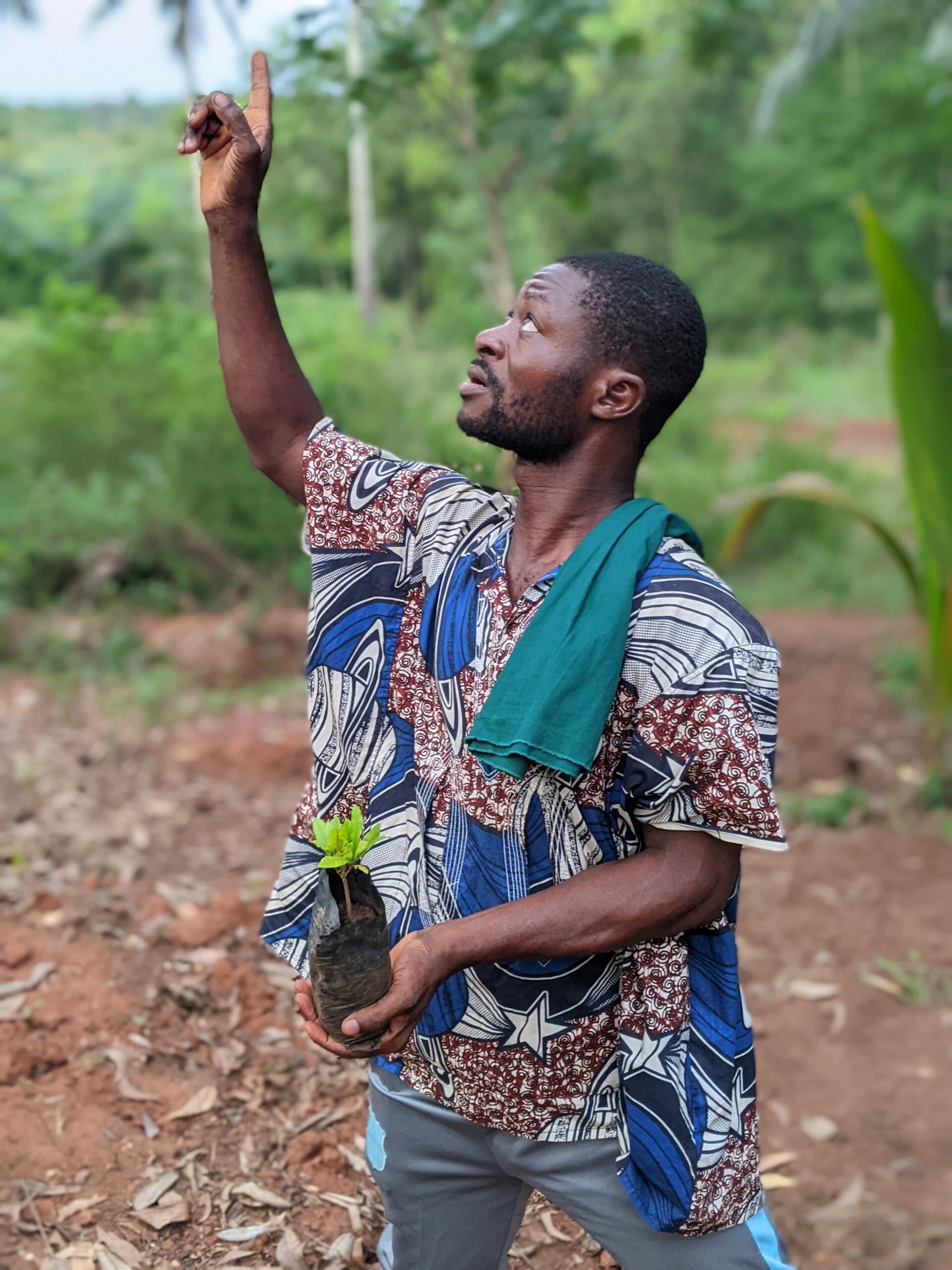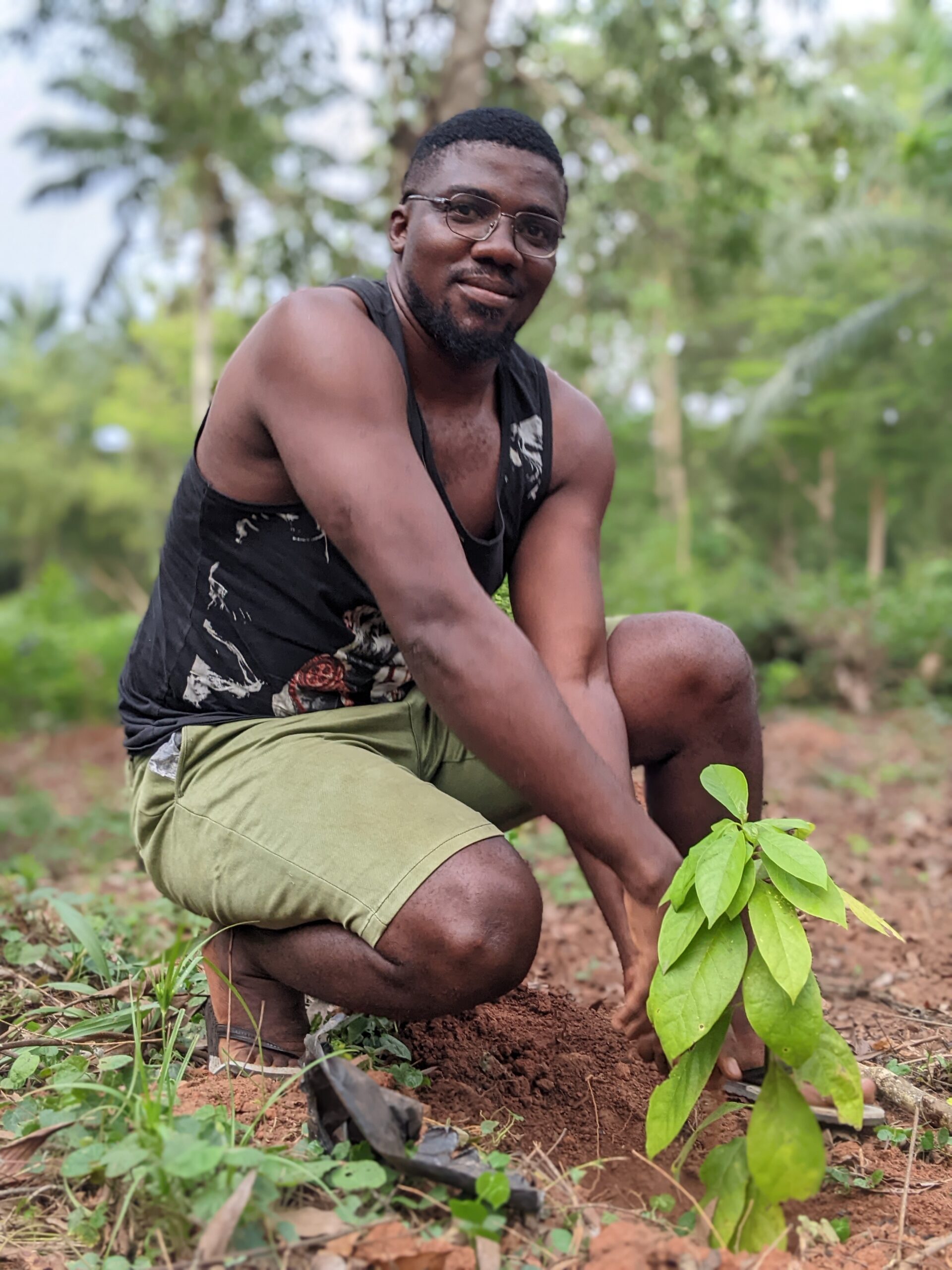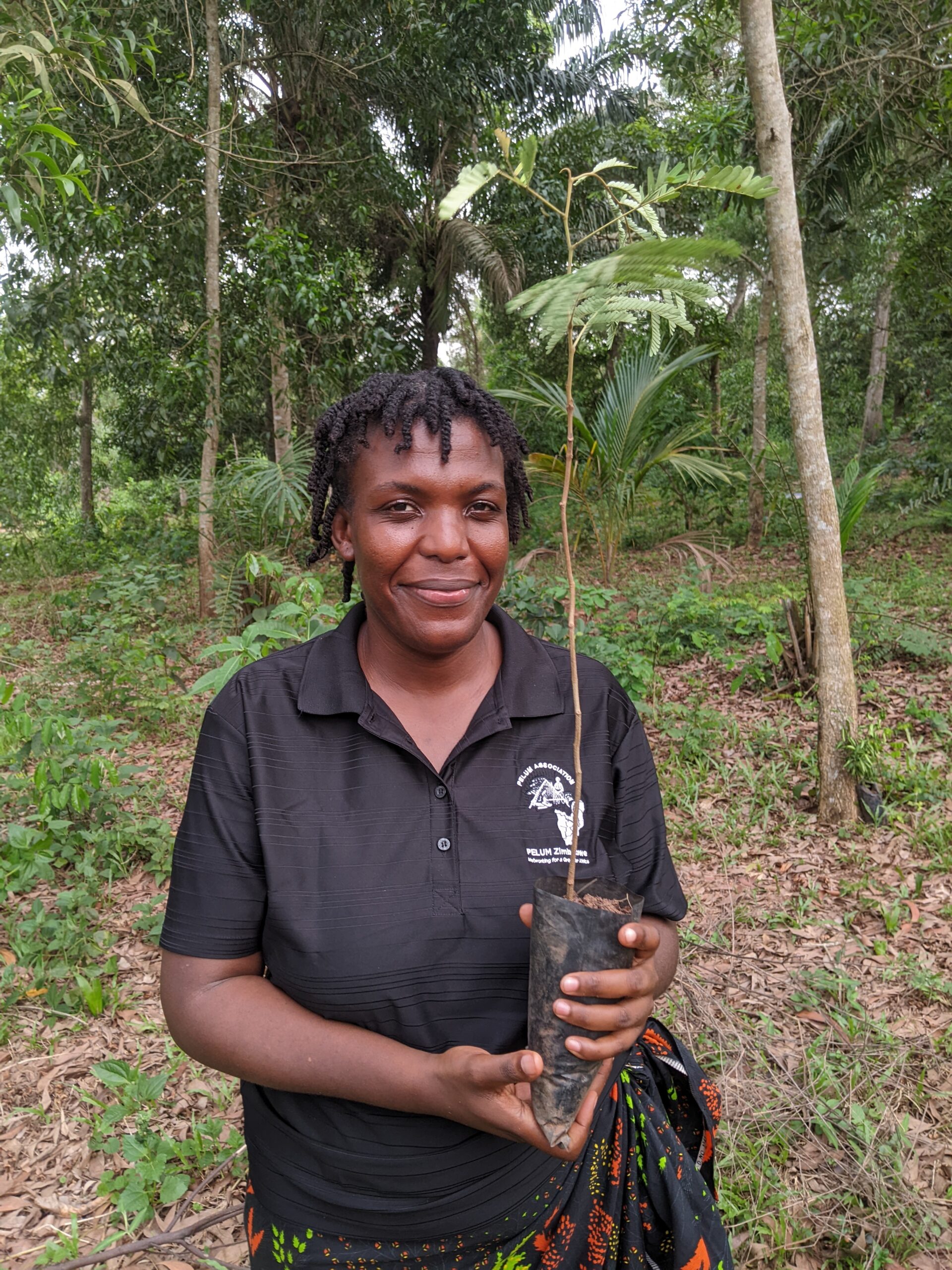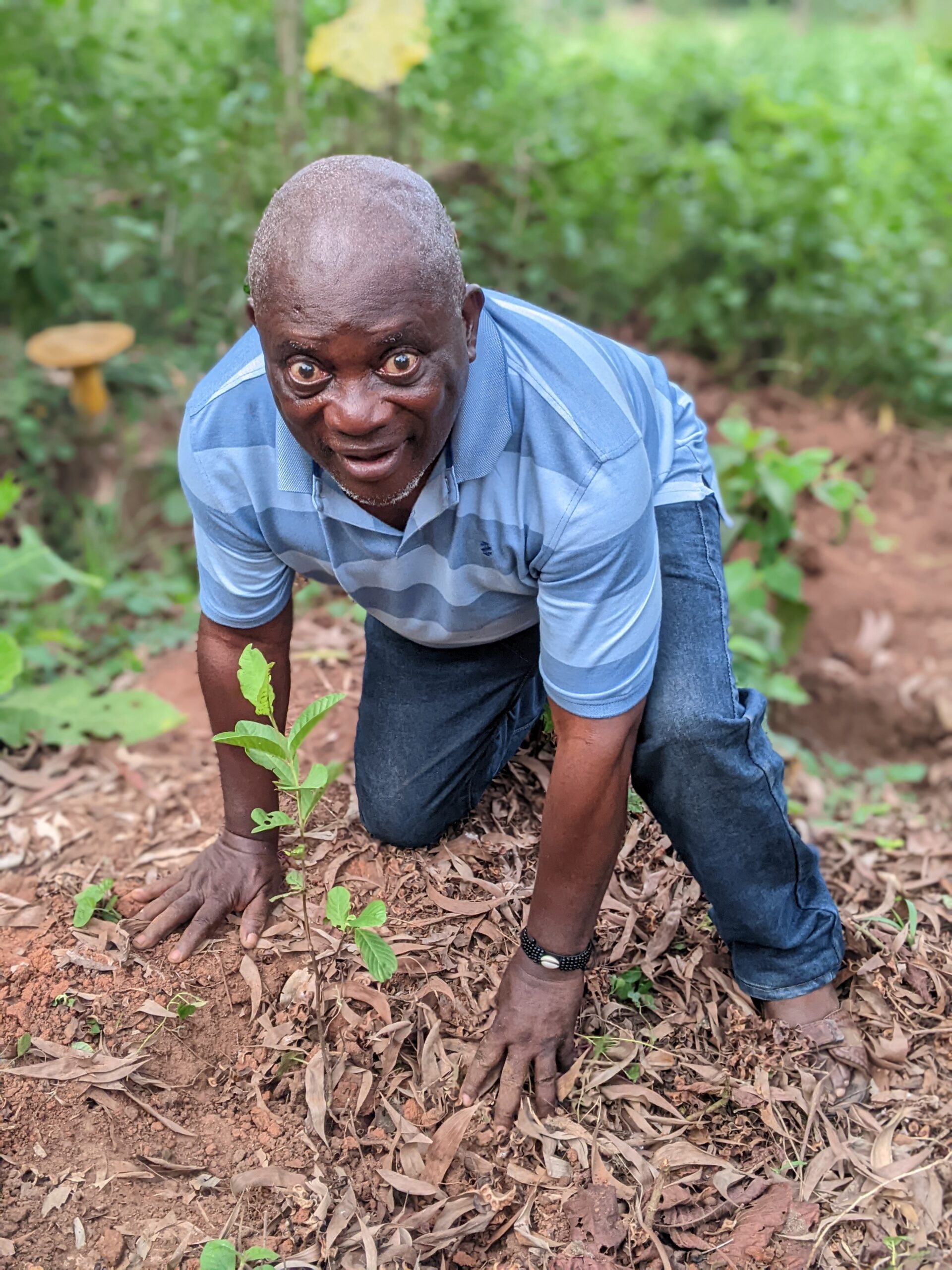A Story from African Earth Jurisprudence Collective
The moon was new that night. Slim as she was, the lack of light pollution in the jungle allowed her to illuminate our welcoming ceremony, for the Earth Jurisprudence trainees about to arrive. Victor Boton, Rodric Xavier Ndjamo, Julie Gagoe, Sone Wang Johnson, and Christian Jitar Taku have spent three years undergoing journeys of decolonisation: unlearning the allure of colonial ‘development’, and remembering the Indigenous wisdom that centres around a reciprocal relationship with Earth. Now, they are in Benin and about to abide by the law of their grandmother moon, ending this training cycle by graduating into another, as they become African Earth Jurisprudence practitioners.
The ceremony was hosted by a graduate of the first Trainings for Transformation – which began a decade ago – Chief Atawé Akôyi. He has returned to his roots in the Avrankou region and runs a local organisation, Groupe De Recherche et d’action pour le Bien-Etre au Bénin (GRABE-BENIN), to accompany his community, lands and rivers in returning to health.
The Voudon religion is still strong in Benin and on arriving we were introduced us to earth, water, fire and air: while dancing on red soil, Chief mixed medicinal plants into a bowl of riverwater and showered it onto the flames, sending steam up to meet stars beyond the palm trees. The four elements, central to this tradition’s reverence for Nature, would accompany us through our time together.
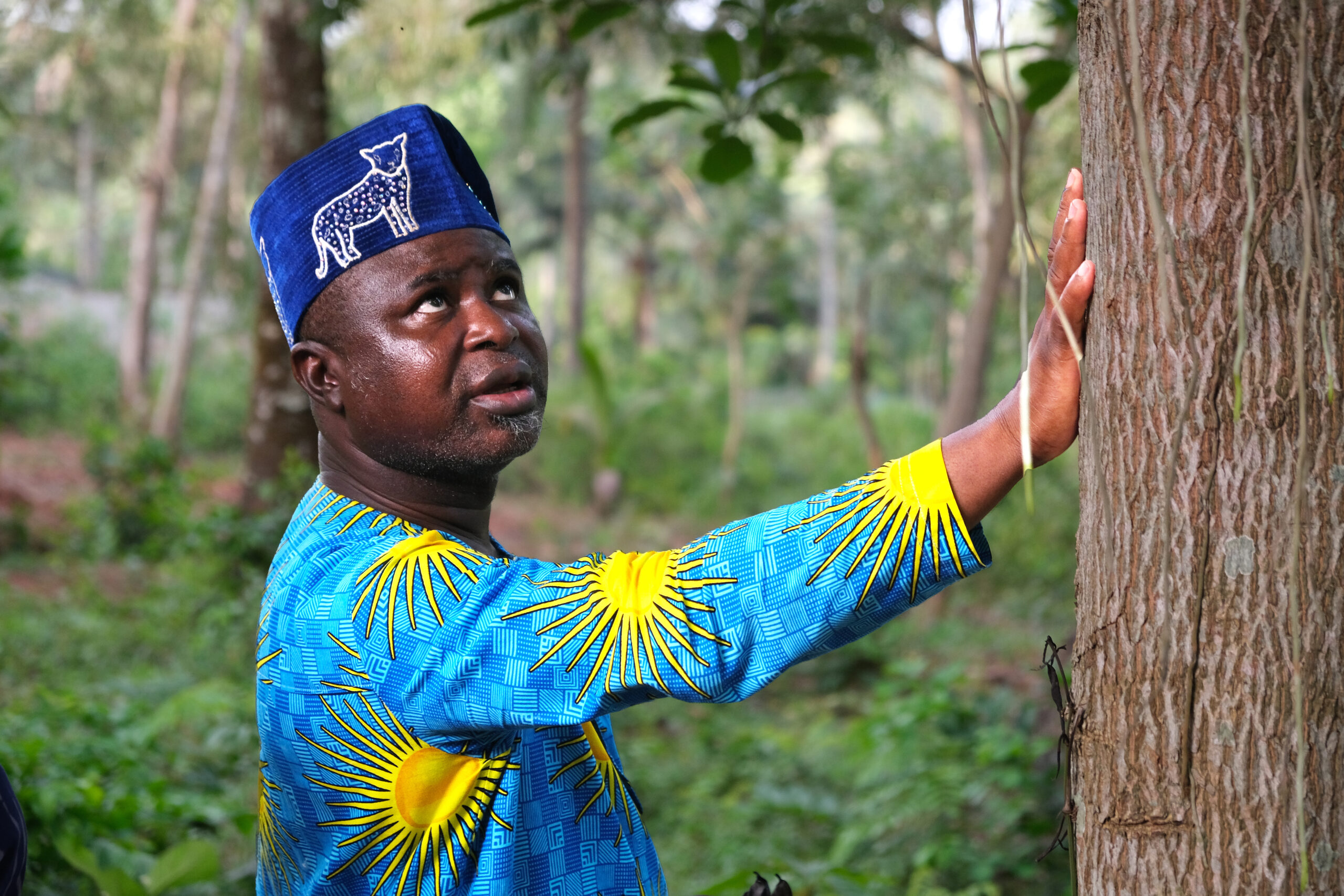
Chief Atawé Akôyi A. OUSSOU LIO
‘Jurisprudence’ refers to the way we govern our lives. Western Jurisprudence from Africa’s colonisers created laws and attitudes that consider humans to be separate from, and superior to, Nature. This has legitimised the destruction of lands, waters, cultures and biodiversity. Earth Jurisprudence means being Earth-centred in the decisions we make about how to conduct our lives, ensuring we do no harm to the community of life that supports us. It is inspired by Indigenous cosmologies that sustained balance with ecosystems for millennia.
The Trainings for Transformation critically assess industrial growth society and explore Earth Jurisprudence as a life-sustaining alternative. For trainees, most of whom are civil society leaders working with local communities, it is an experiential process: of tracing their ancestry back to their Indigenous clans and more-than-human family; of transforming from human-centred to Earth-centred awareness by learning the laws of Nature that are ancient and alive; and of cultivating the capacity to accompany others on this journey. After graduating, this embodied knowledge enables them to nurture the revival of traditional cultures, and the Nature those cultures are centred around. Ultimately, and collectively, they create islands of biocultural resilience across their homelands, from Benin to Zimbabwe.
“If the world is to be healed through human efforts, it will be by ordinary people, people whose love for this life is even greater than their fear” Elder, Joanna Macy
Developed and delivered by The Gaia Foundation, Siama Programme, Proteus Initiative and many other tutors, the course also involves mentoring from graduates – inspired by Indigenous practices of intergenerational learning. Trainees from this third Trainings for Transformation course were supported throughout their journey, and here in Benin, by mentors Simon Mitambo from Kenya, Chief Atawe Akoyi and Edonandji Jacques Gbegniho from Benin, Gertrude Pswarayi from Zimbabwe and Samuel Nnah Ndobe from Cameroon.
- Edonandji and Sam
- Simon and Gertrude
Together, graduates and facilitators of the course form the African Earth Jurisprudence Collective: a community of practice exchanging knowledge across the continent. Emergence is our guiding principle – a mirror of the natural world, developing complexity through enhancing connections. Rather than imposing ‘projects’ or external ideas on an ecosystem or on a community, practitioners learn to create conditions for Indigenous people and their lands to weave back together again, at their own pace. As more communities are inspired by this revival, so the work ripples out to others, creating landscape-level change.
As part of the graduation week in Benin, Chief Atawé Akôyi gave the new graduates the opportunity to learn from a community that he and GRABE-BENIN have been accompanying in this process. We were privileged to see how they were able to restore a sacred forest, which has now doubled in size and is protected by customary governance.
- Revived rituals are now being performed at this sacred forest regularly
As we sipped palm wine from gourds and listened to the community, we learnt that their Indigenous approach to replanting and protecting forests is far more sophisticated than industrial “solutions”; they are carefully restoring places with rich biocultural diversity. Trees stand tall among a diversity of life, from pythons to people performing sacred rituals. The impact is felt across the wider landscape, too, with farmers returning to their traditional agroecological farming in surrounding areas, and not encroaching on the forests. You can watch a film about the story here.
- The community discusses the restoration of their culture, lands and rivers
This inspiration flowed directly to the graduates, who had earlier presented their Rivers of Life. These chart the journey they have undergone and envision the future beyond, illustrating how their personal transformation becomes the basis for accompanying others.
- Sone Wang and Julie with their Rivers of Life
For the graduation ceremony itself, the trainees began their initiation in the company of two sacred plants: a branch of African hyssop, the tree understood to be the origin of ancestors, and a fresh shoot of palm.
“When you see the first palm fronds blooming, it means you are the one who follows life.” Chief Atawé Akôyi
- Victor, Julie and Christian holding African hyssop and palm twigs
What followed was based on Vodoun rituals. We circled back to the elements of earth, air, fire and water, accompanied by traditional leaders, temple priestesses, Earth divinities, musicians and dancers.
“What happened here is a huge opportunity for the graduates. They had the blessings of four great leaders, who taught them the law of the four sacred elements. Nothing is random. They were meant to be here.” Chief Atawé Akôyi
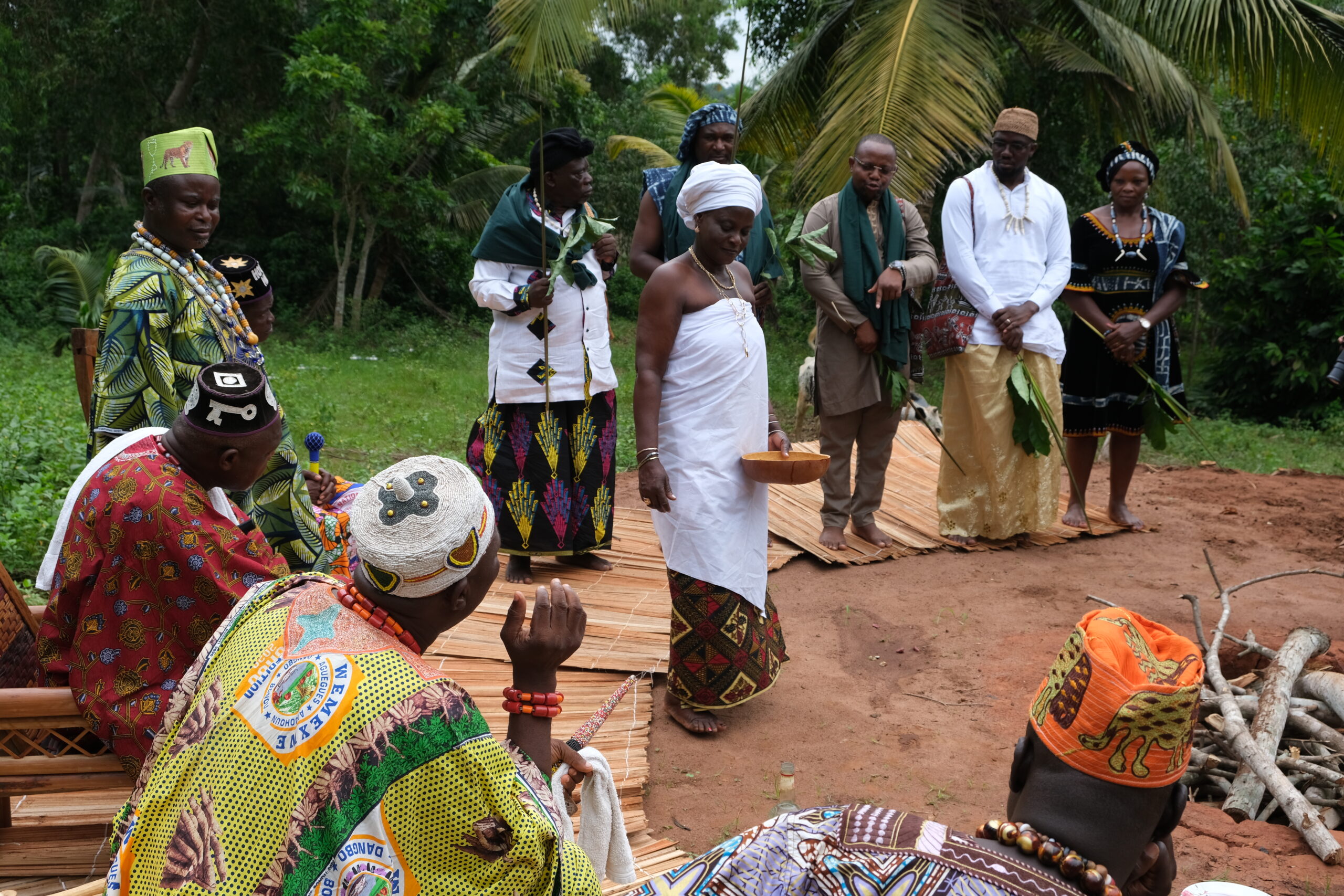
From water, graduates learnt the interconnectedness of life, all of which relies on this element.
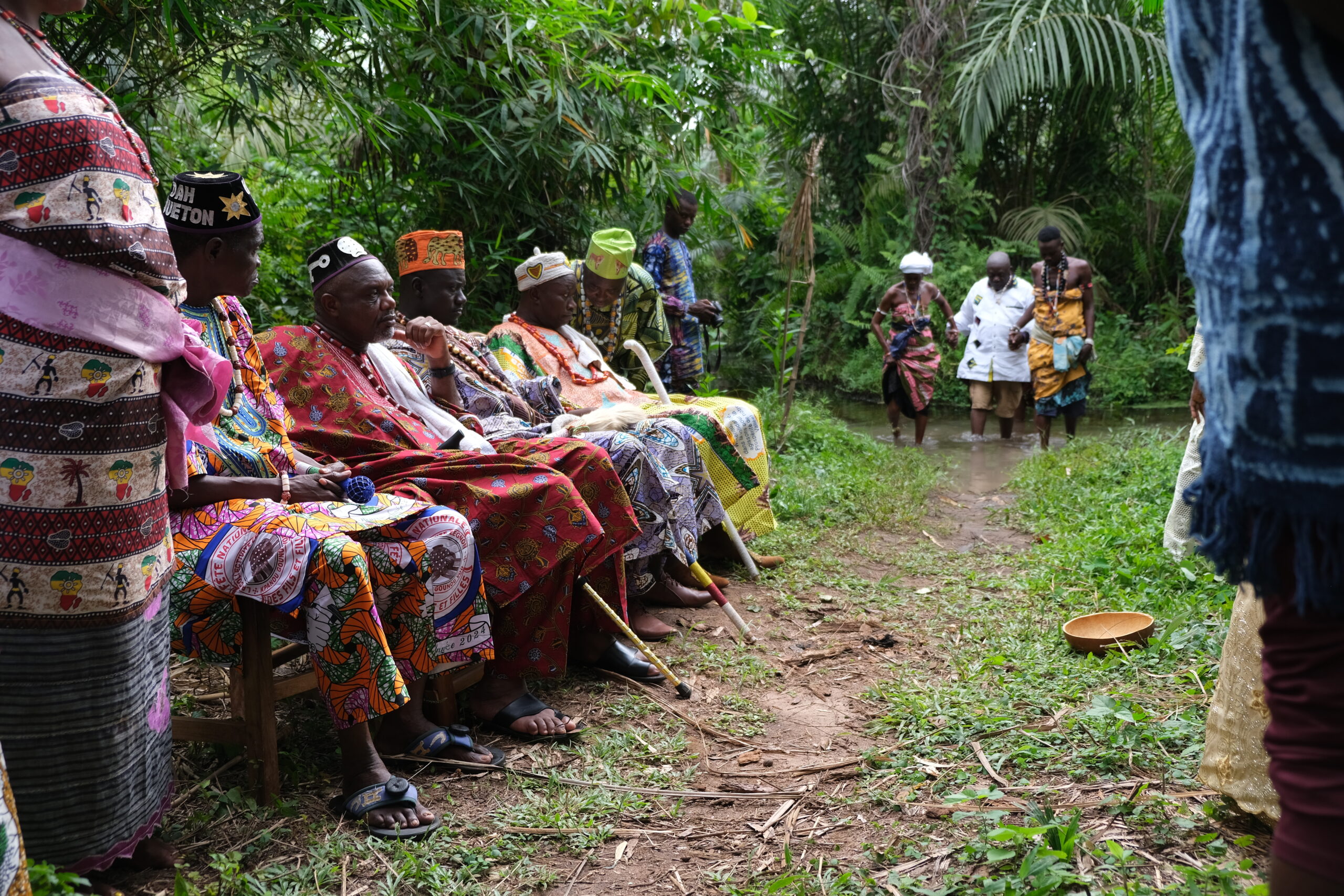
Earth teaches us the cycle of life: that we come from our Mother Earth and will return.
The power of fire was received through palm wine, igniting their intent for the future.
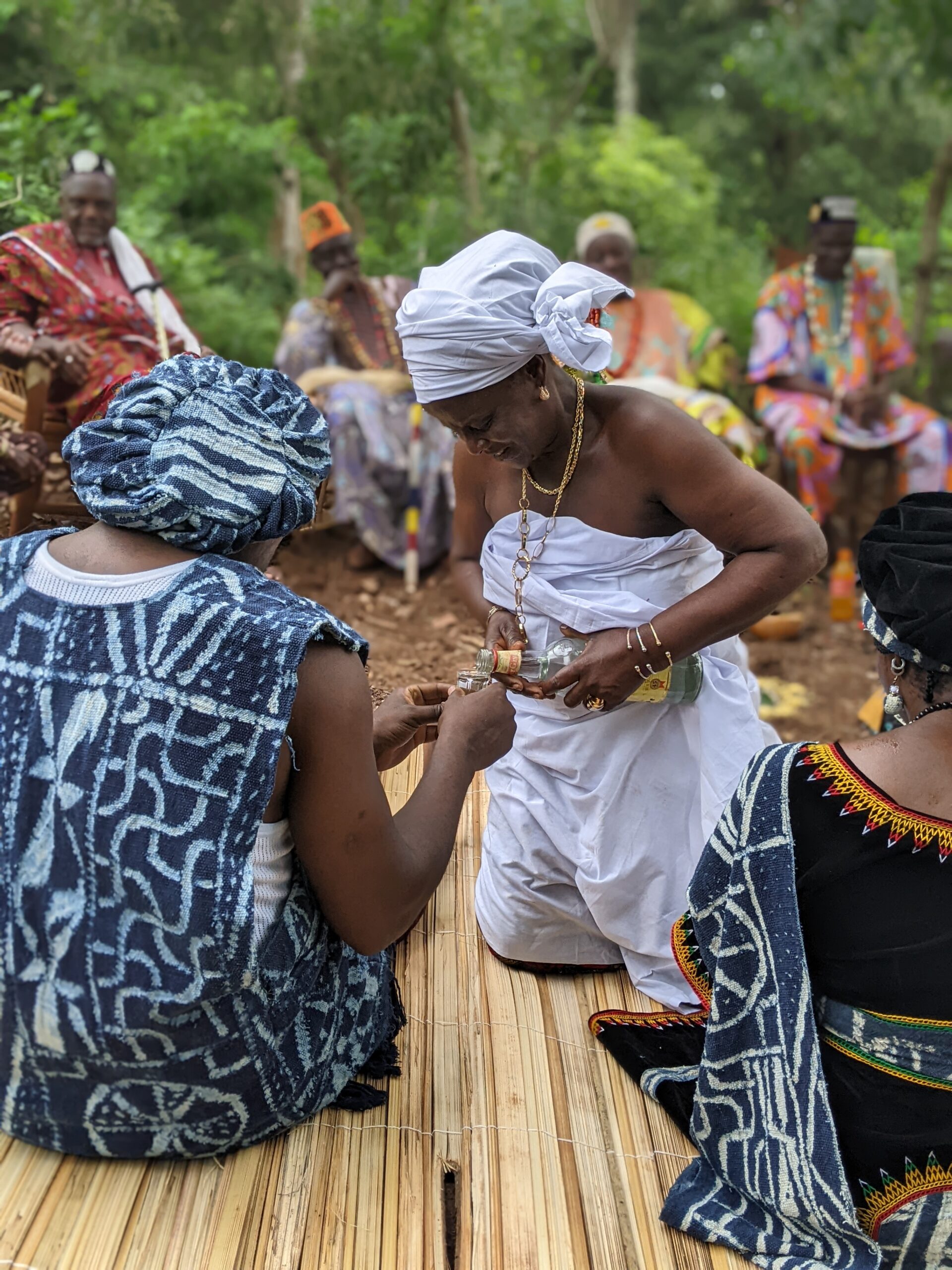
“Air is the greatest being: you can’t see it and yet it moves everything. The power of air passes through speech. The words of these graduates will create change.” Chief Atawé Akôyi
After their initiation into this elemental lore, Xavier, Julie, Sone Wang, Christian and Victor received green Beninese cloths. They represent the swaddling clothes mothers use to carry children, in Africa and beyond. They remind us to be humble and learn from our great ancestor, Mother Earth.
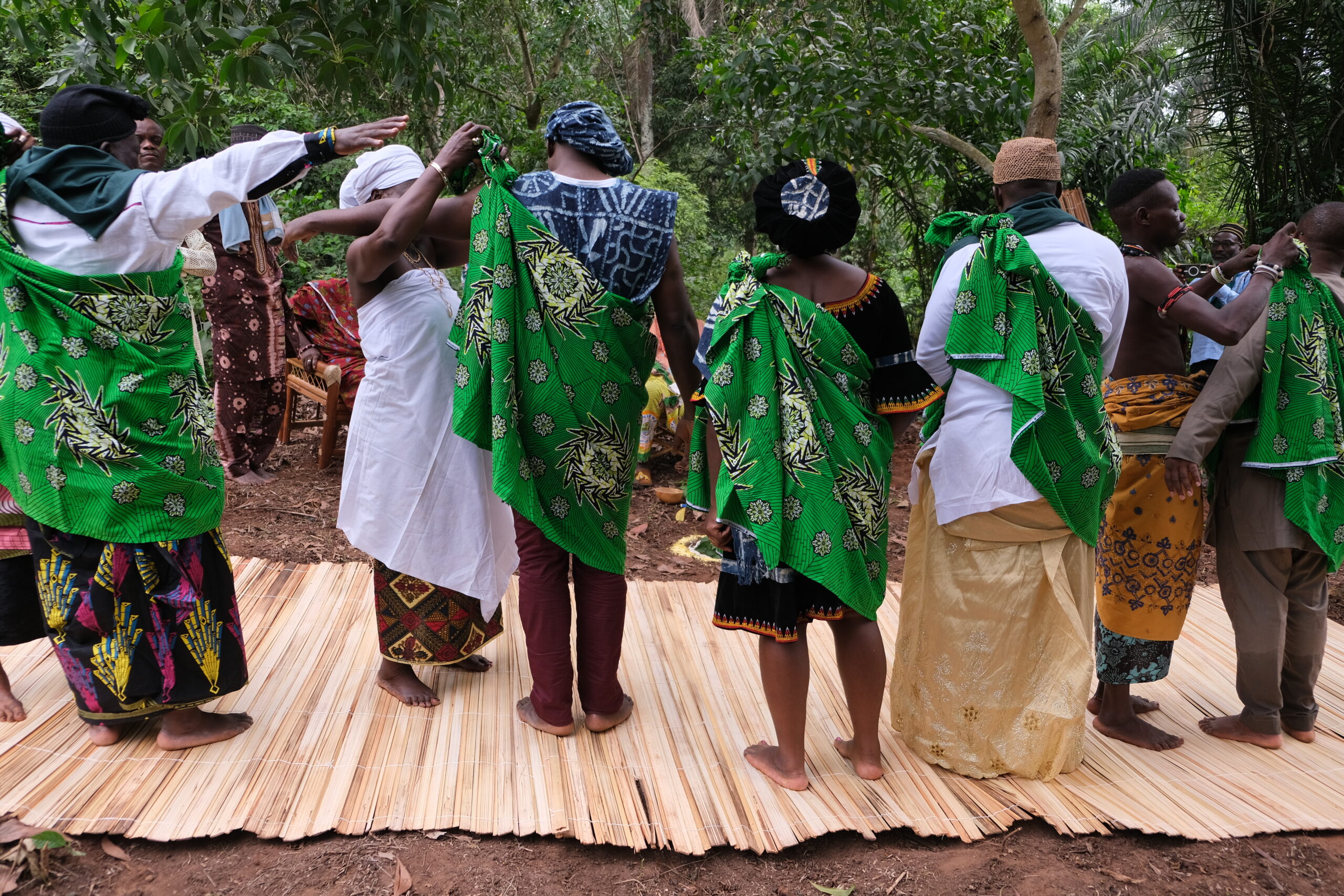
As members of a growing African Earth Jurisprudence Collective, everyone had the opportunity to plant an Indigenous tree. Local varieties of lemon, avocado, orange, mango, papaya: all had been grown from seed in Chief’s nursery, alongside many other Indigenous plants that will be used for restoring forests for human and more-than-human beings. With them, we planted our gratitude to these Beninese lands for holding this ceremony, and hopes for a fruitful future.
You can keep up to date with news of the Collective by subscribing to Earth Jurisprudence Updates here.


